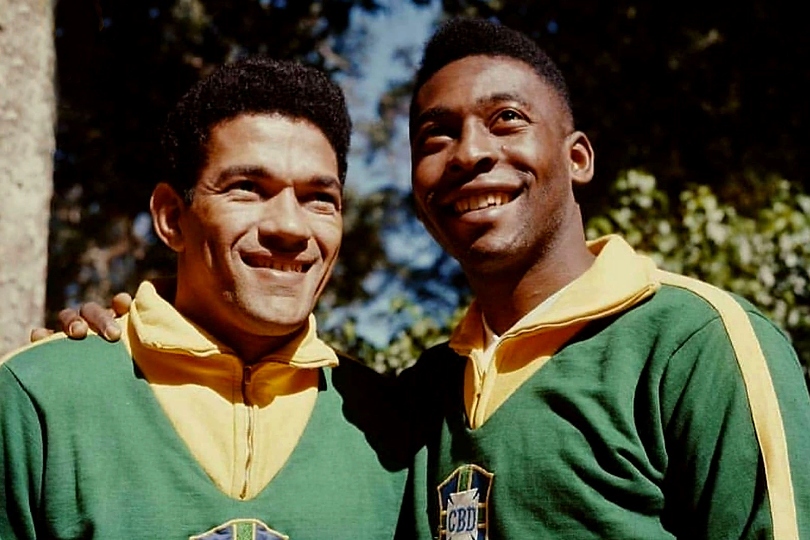
Some of the most famous footballers in history are not known by their real names.
Numerous Brazilian players in particular are household names – but because of their nicknames acquired in their youth or early in their careers.
Here, a look at some of the most famous footballers known by their nicknames...
32. Grafite
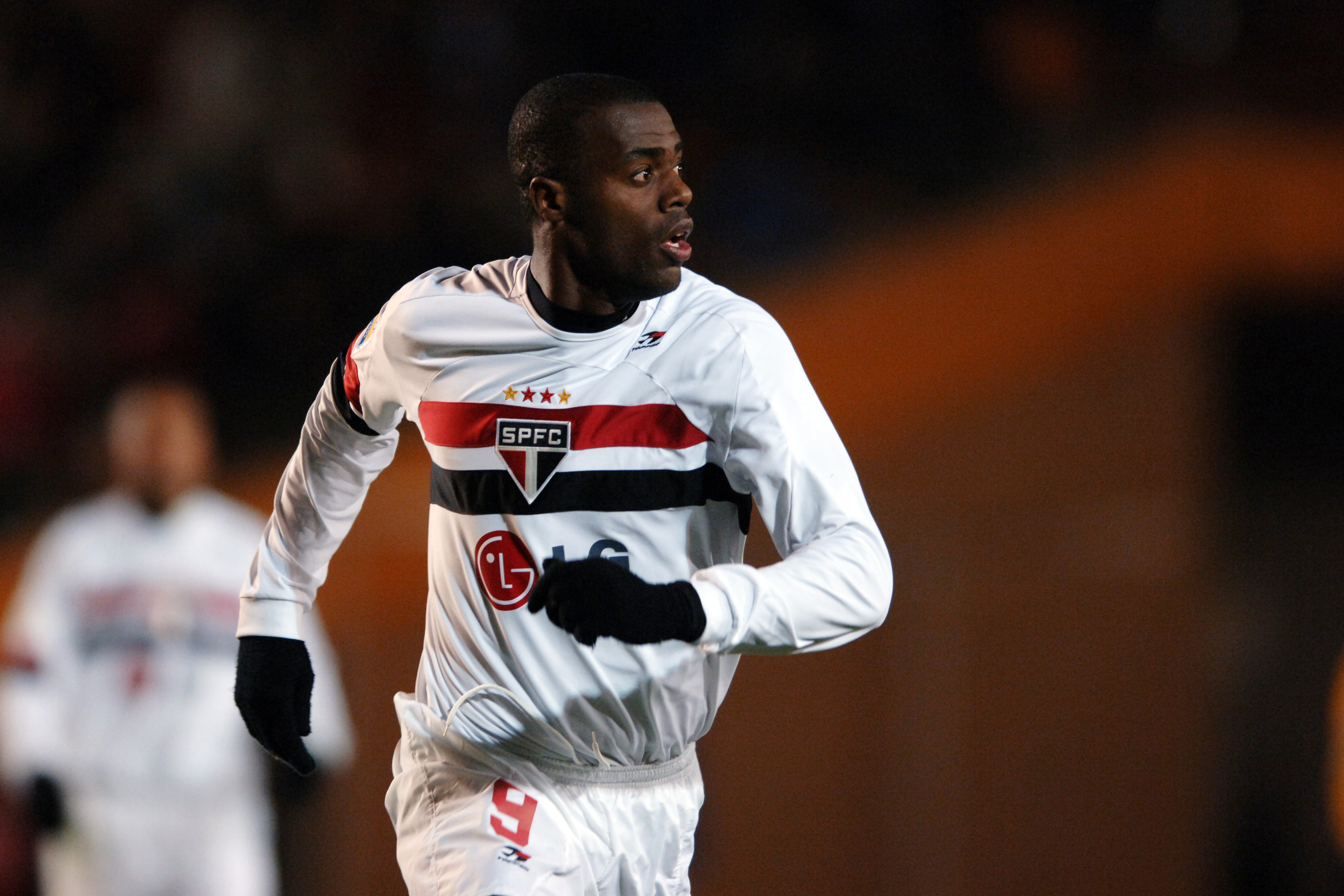
Grafite is best remembered for his wonder goal against Bayern Munich for Wolfsburg, when he dribbled past several players and finished with a nonchalant back-heel in a 5-1 win in 2009.
Born Edinaldo Batista Libânio, he was given the nickname Grafite ("Graphite") simply because a coach called him that one day during a trial at Matonense, having known another player who had looked like him in the past. And it stuck.
31. Cacau
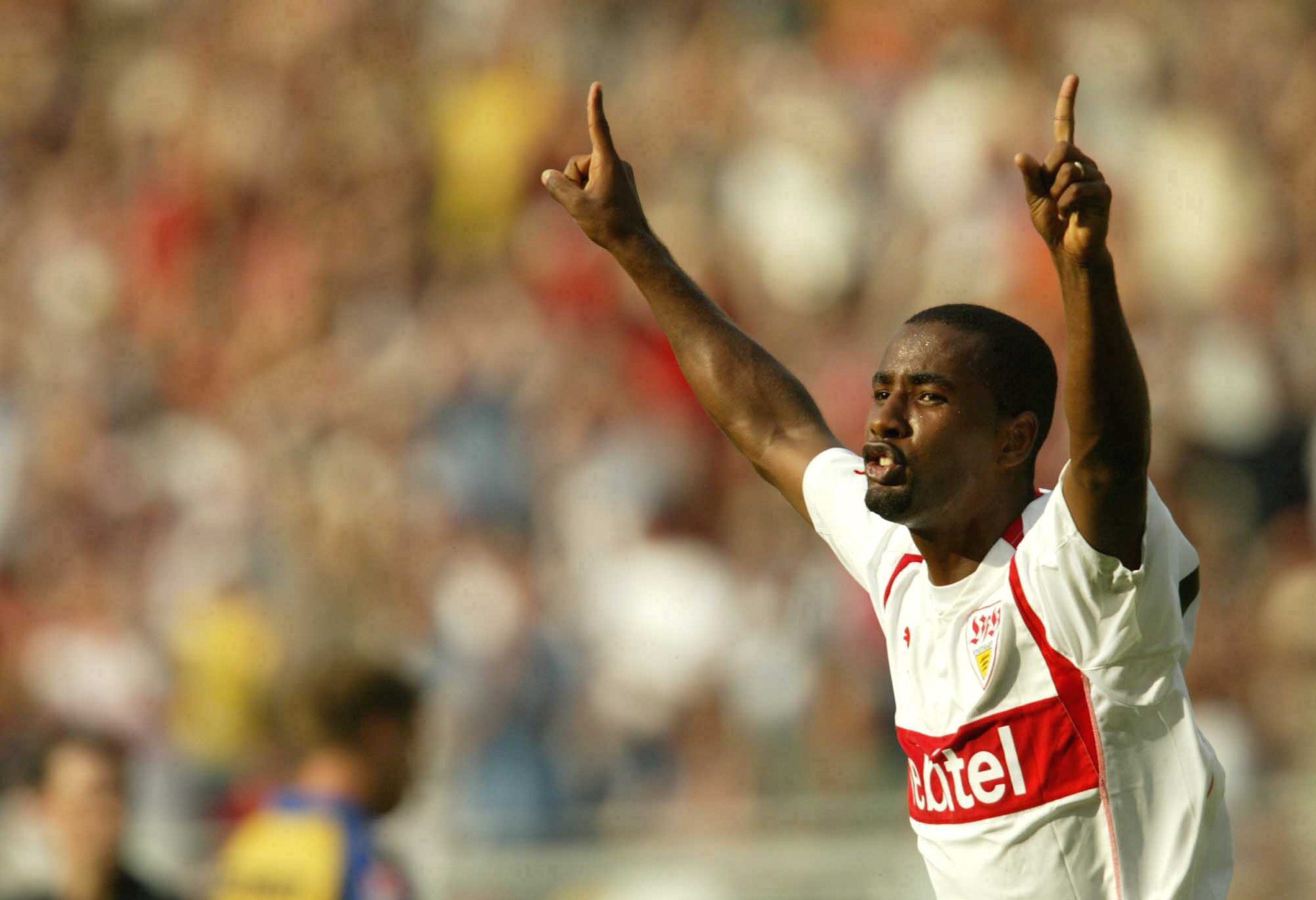
Born in Brazil, Cacau spent most of his career in Germany and ended up representing the German national team, winning 23 caps between 2009 and 2012.
The striker's full name is Claudemir Jerônimo Barreto, but he became known as Cacau ("Cocoa") in Brazil. After his naturalisation, he was given the German nickname "Helmut" by Swiss team-mate Ludovic Magnin at VfB Stuttgart.
30. Messinho
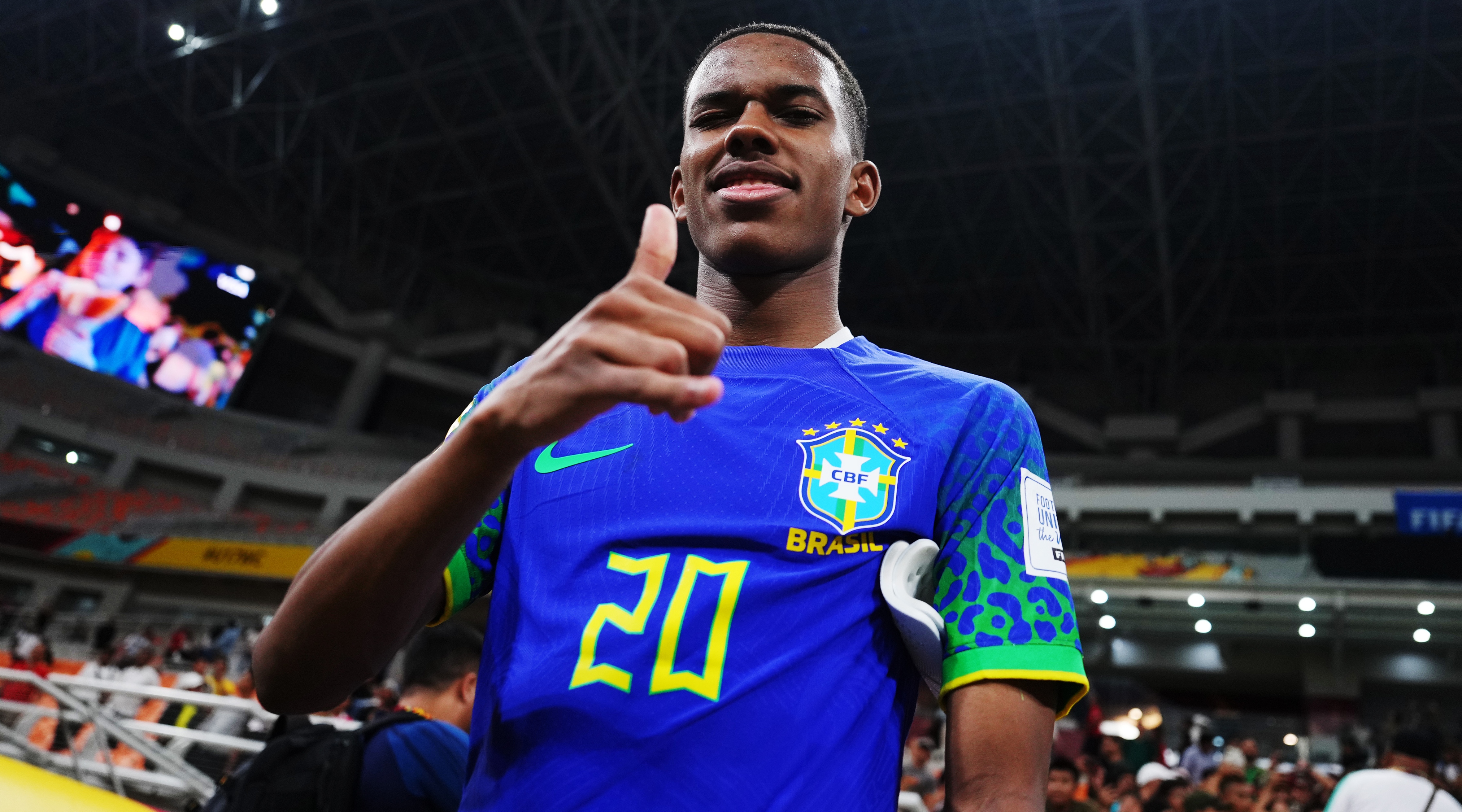
Estêvão Willian Almeida de Oliveira Gonçalves is a winger who emerged at Brazilian club Palmeiras after a spell with Cruzeiro and he is considered one of the country's brightest young talents.
Due to similarities in his playing style with Argentina and Barcelona legend Lionel Messi, he has been nicknamed Messinho ("little Messi"). No pressure, then!
29. Caju

Caju played for Botafogo, Flamengo and Marseille in the late 1960s and early 1970s. An attacking midfielder, he won 57 caps for Brazil, appeared at two World Cups and scored 10 goals.
Born Paulo César Lima, he was nicknamed Caju ("Cashew") after returning from a trip to the United States with his hair dyed red in 1968.
28. Petit
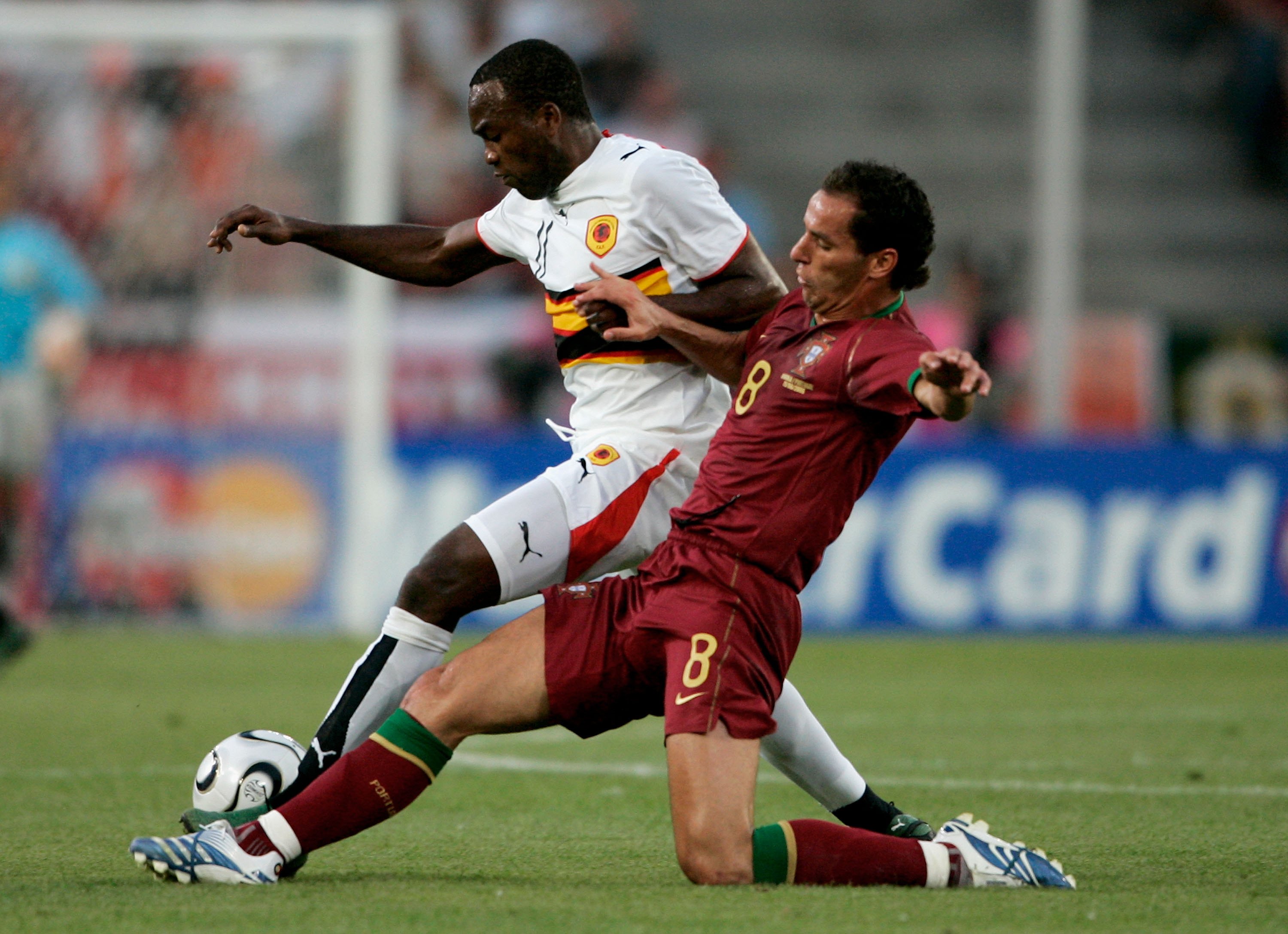
A fiercely competitive defensive midfielder, Petit won 57 caps for Portugal between 2001 and 2008. Portuguese Footballer of the Year in 2001, he won league titles at both Boavista and Benfica.
His real name is Armando Gonçalves Teixeira and the nickname Petit ("small" in French) comes from his slight stature and the fact that he was born in France. Makes sense.
27. Alemão
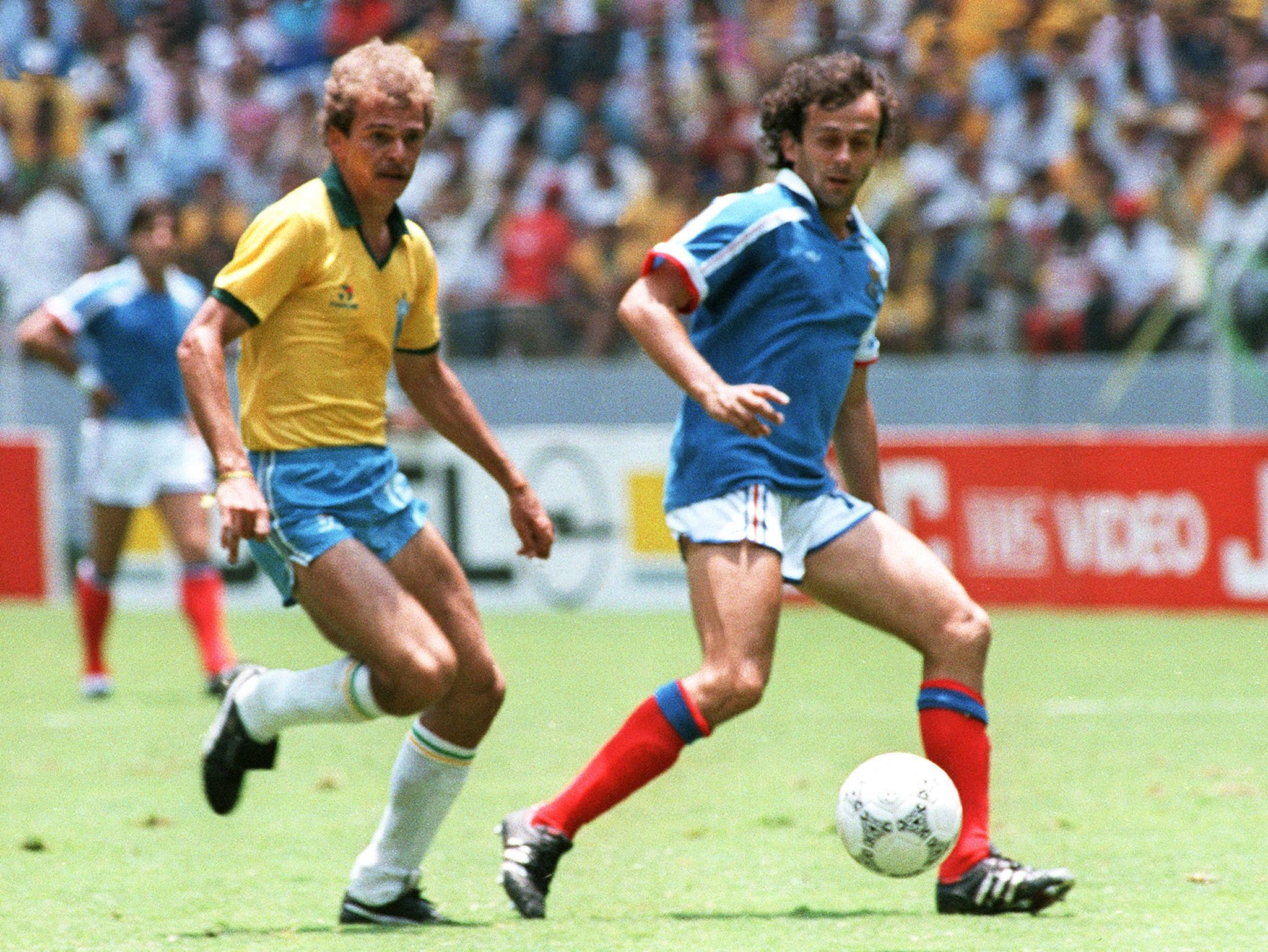
Alemão won 39 caps for Brazil between 1983 and 1990 and played in two World Cups. A Copa America winner in 1989, he was part of the Napoli side which claimed the UEFA Cup in 1989 and a Serie A title the following year.
A tenacious and technically proficient defensive midfielder, Alemão was born Ricardo Rogério de Brito. His nickname means "German" and was given to him due to his blond hair and fair complexion.
26. Tostão
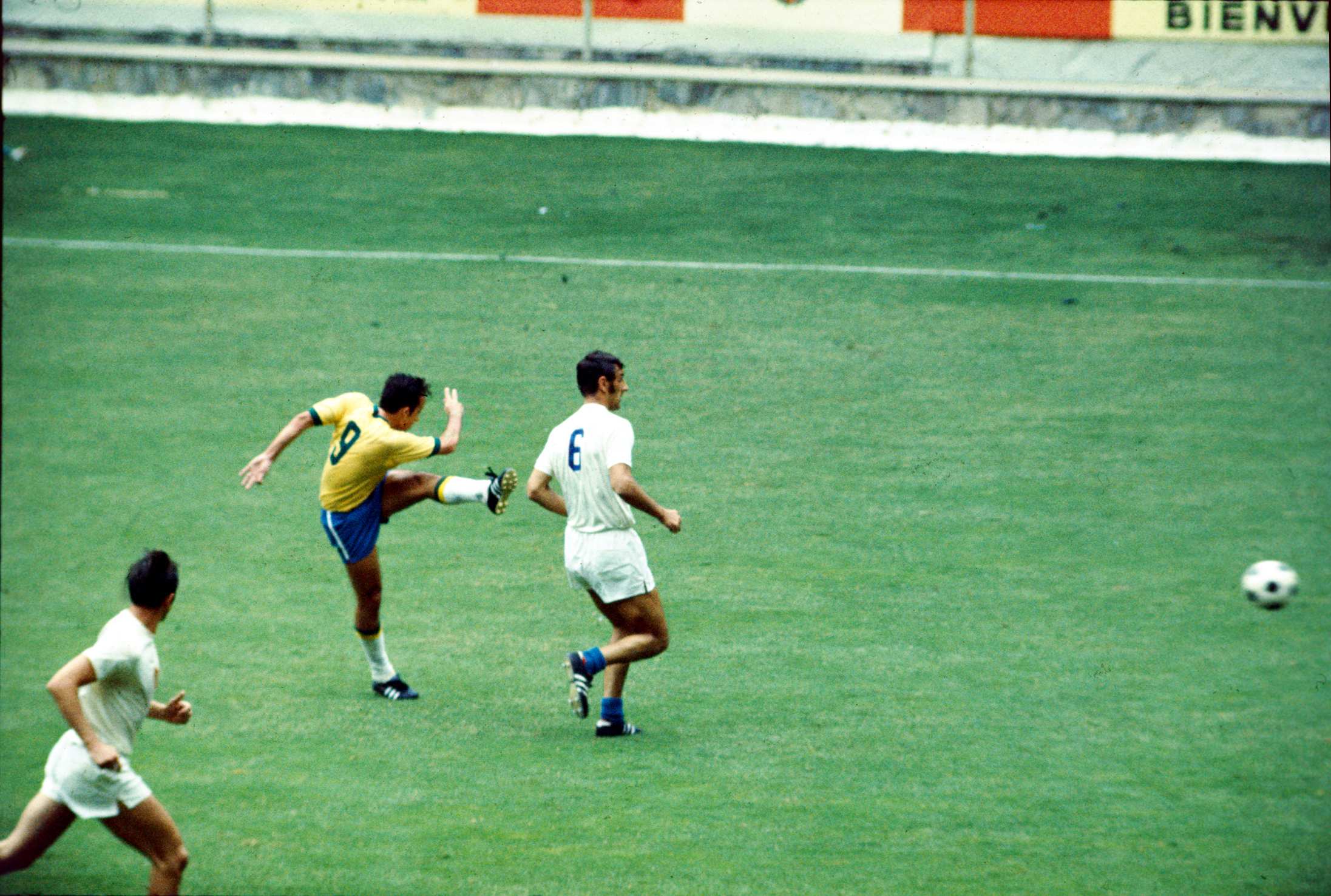
Tostão was an intelligent and technically gifted left-footed forward for Brazil in the late 1960s and early 1970s and a key member of the 1970 World Cup-winning side.
Born Eduardo Gonçalves de Andrade, he was nicknamed Tostão ("little coin") early in his football career, due to his small stature. Legend has it that as a six-year-old, he scored 47 goals in one game. For Brazil, he netted 32 in 54 appearances.
25. Pauleta
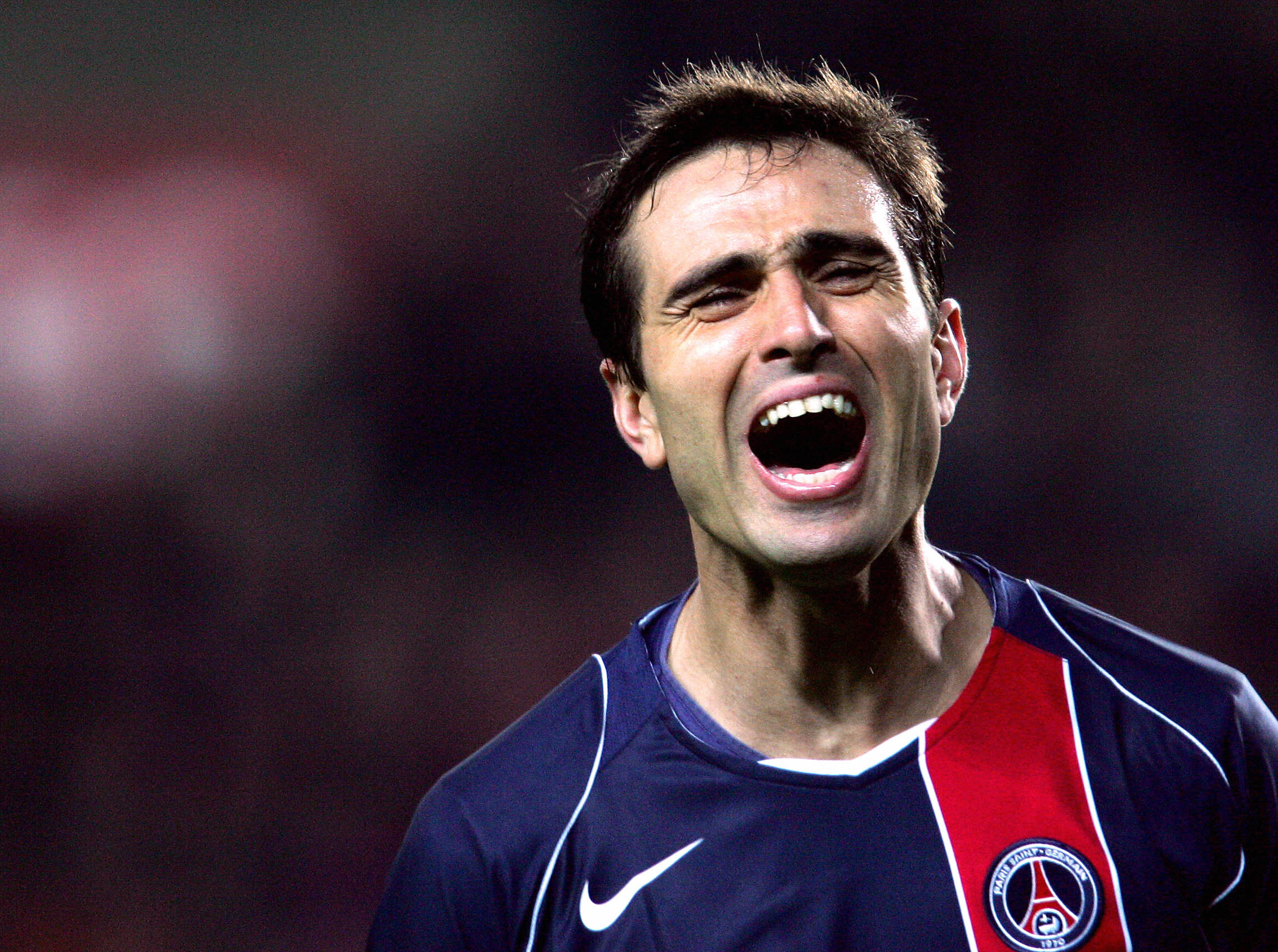
Pauleta scored 47 goals in 88 appearances for Portugal between 1997 and 2006 and was the nation's top scorer until he was overtaken by Cristiano Ronaldo in 2014.
Born Pedro Miguel Carreiro Resendes, Pauleta was a nickname passed down through the generations in the family of his father's maternal grandmother. His goal celebration, which saw him spread his arms like wings, also saw him dubbed "The Eagle of the Azores".
24. Pepe
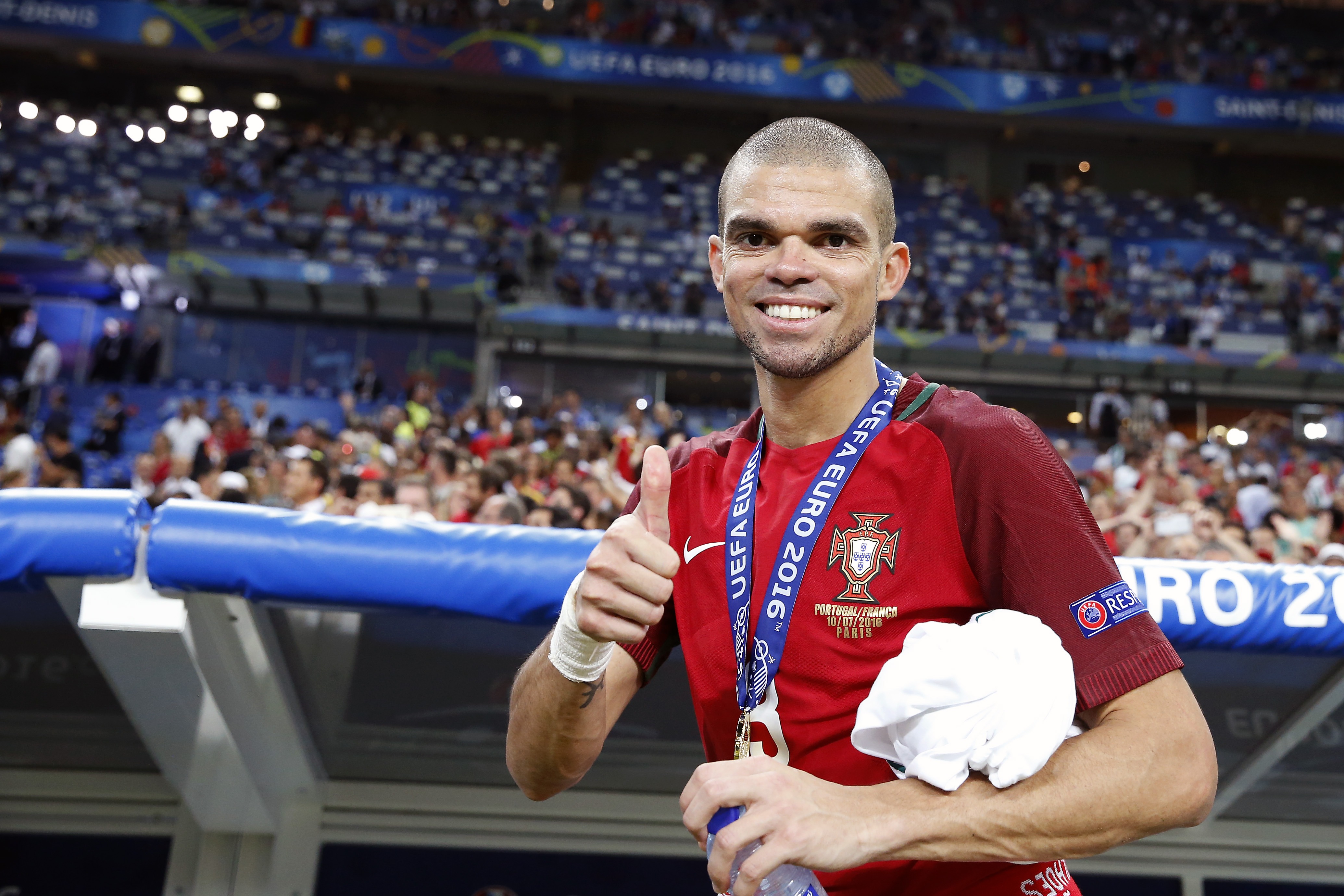
Born in Brazil, Pepe went on to become one of Portugal's great defenders and was part of the team which won Euro 2016. He also won three Champions League titles at Real Madrid.
The centre-back's full name is Kepler Laveran Lima Ferreira, but he has explained that because it was more difficult to pronounce, his coach and his father began to call him Pepe instead. And that is how it stayed.
23. Alexandre Pato
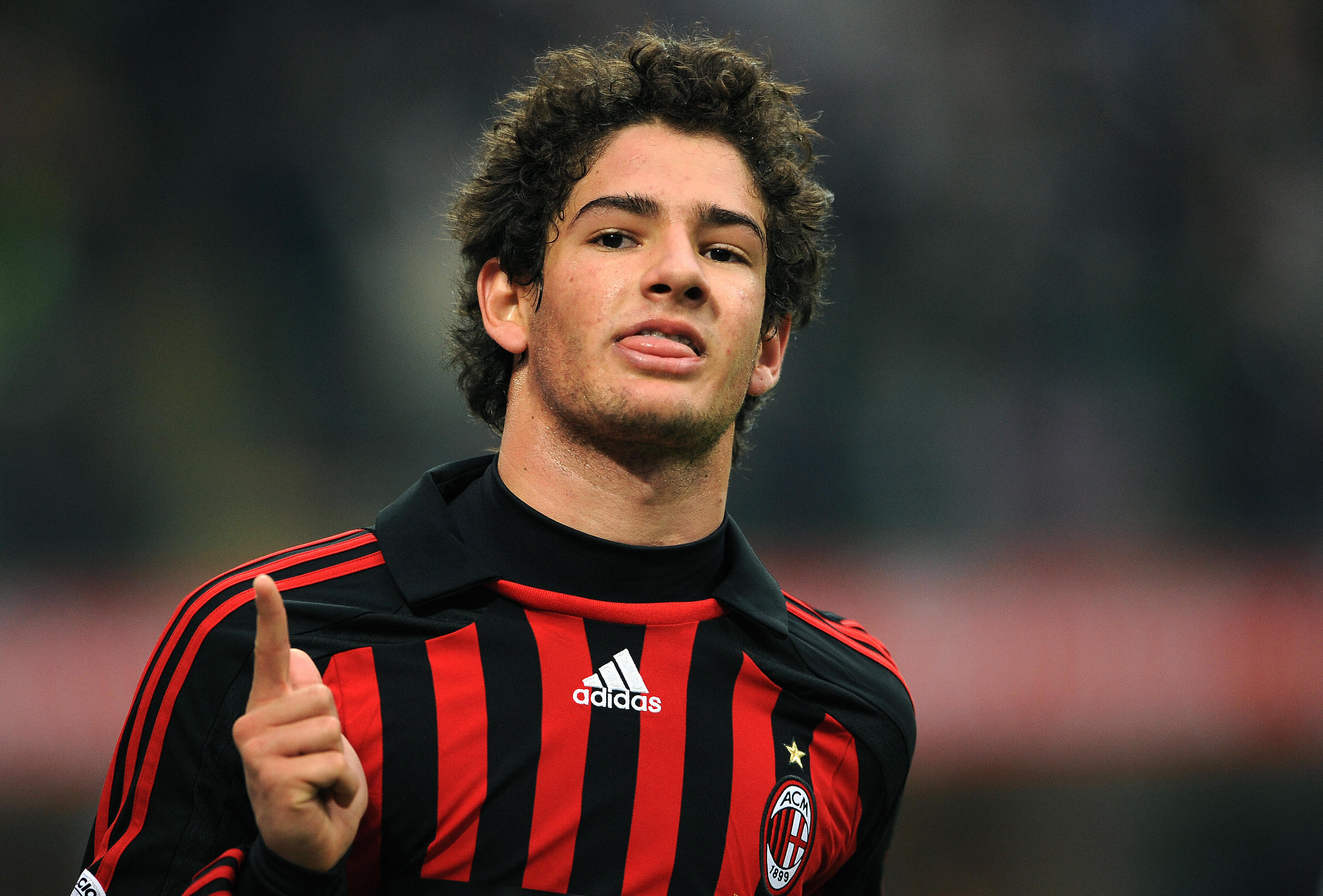
Alexandre Pato won 27 caps for Brazil between 2008 and 2013, scoring 10 goals, and is best known at club level for a six-year spell at AC Milan.
His real name is Alexandre Rodrigues da Silva and Pato (which means "duck" in Portuguese) is not a reference to his physical attributes, but to his home town of Pato Branco ("White Duck").
22. Ganso
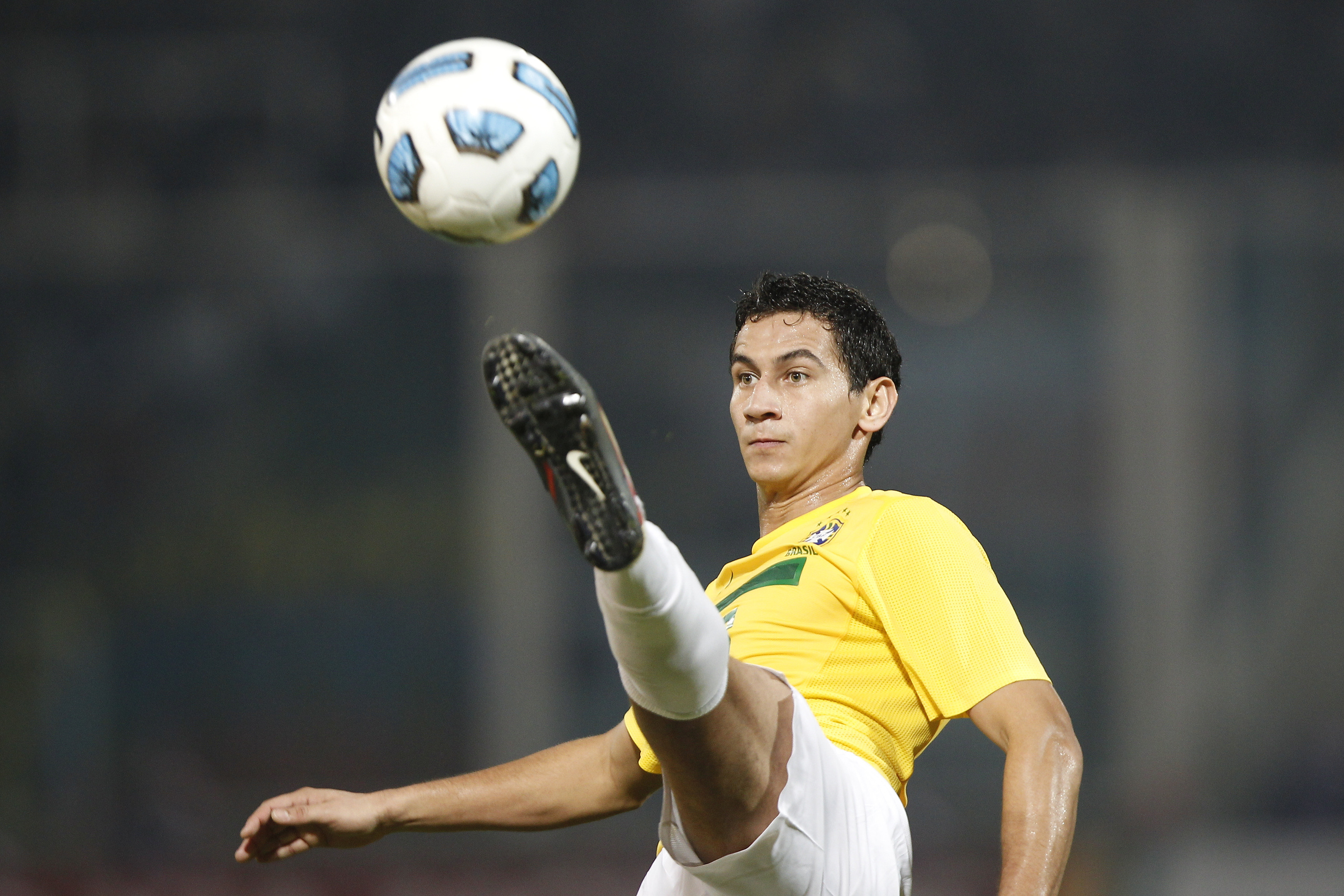
A gifted playmaker who emerged in the same Santos side as Neymar, Ganso was expected to have a long and distinguished international career, but won just 12 caps between 2010 and 2012.
Born Paulo Henrique Chagas de Lima, he was nicknamed Ganso ("goose" in Portuguese) due to his long neck and upright stance when he took to the field.
21. Vampeta
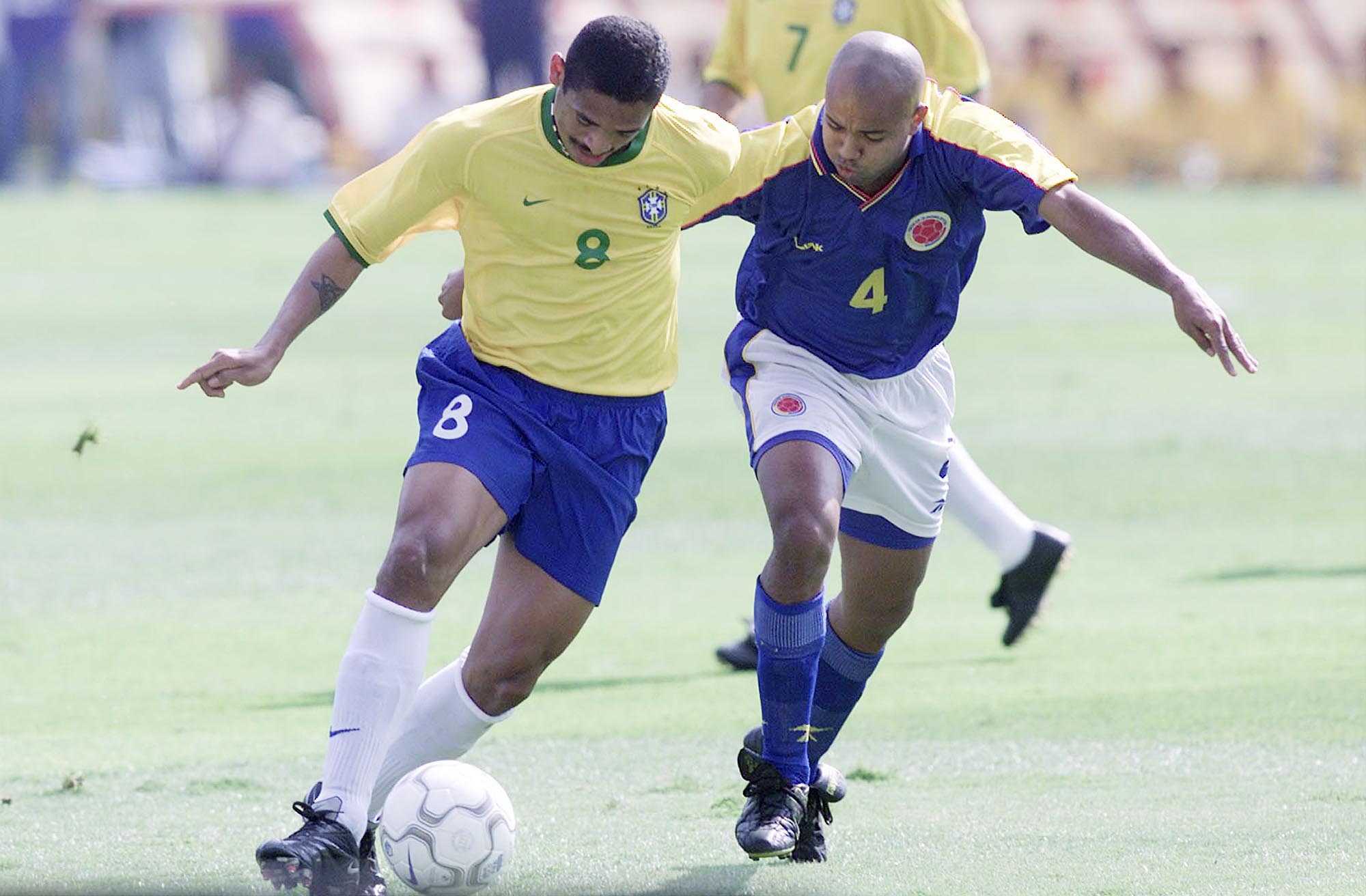
Vampeta played 39 times for Brazil and was part of the nation's World Cup-winning squad in 2002. The midfielder was also a Copa America winner in 1999.
Born Marcos André Batista dos Santos, the name Vampeta is a fusion of the words "vampiro" (Portuguese for vampire) and "capeta" (Portuguese slang for devil).
20. Hulk
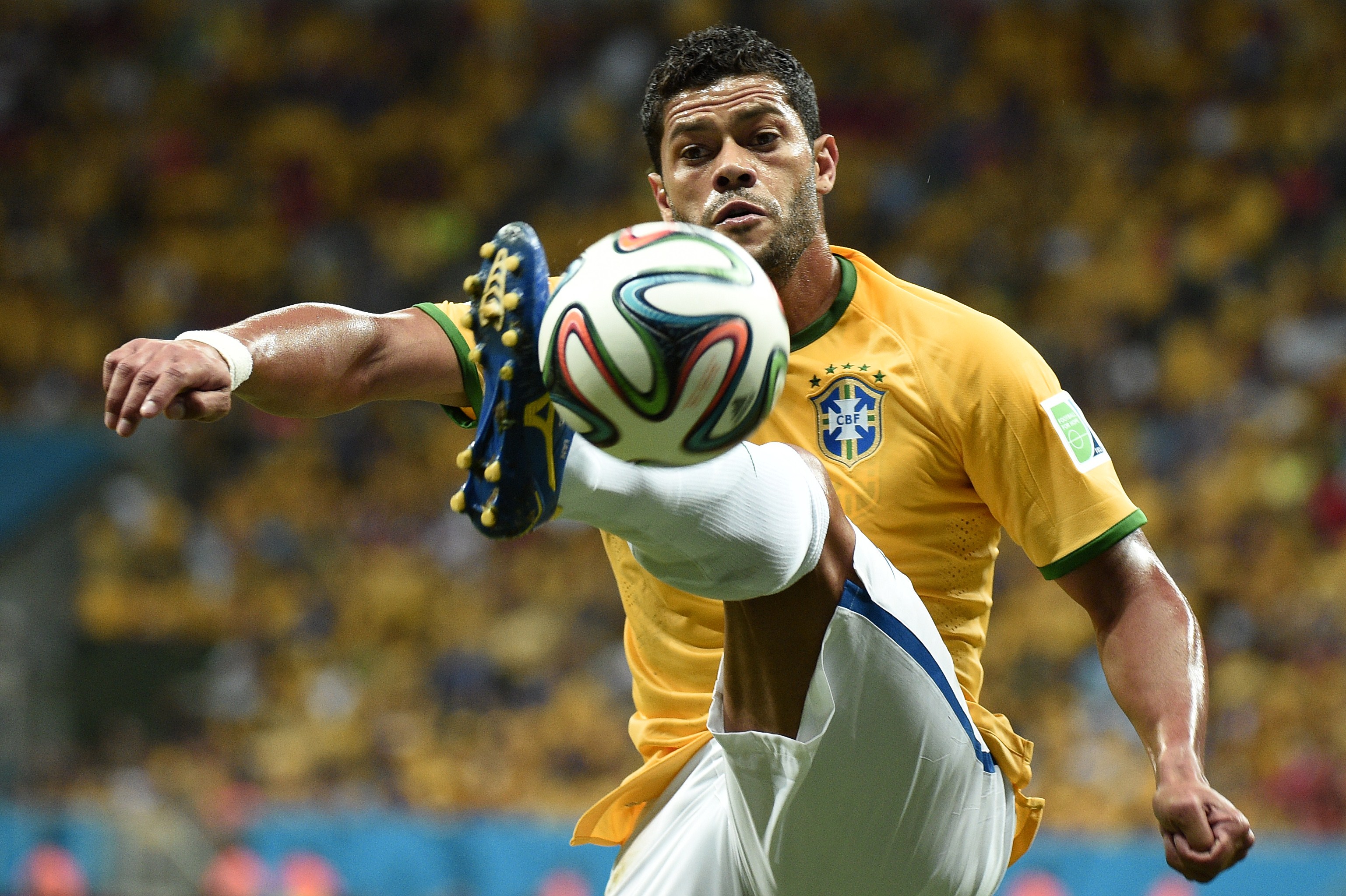
One of Brazil's best forwards of the early 2010s, Hulk left Porto for Zenit Saint Petersburg in a €60 million transfer in the summer of 2013. He won 49 caps between 2009 and 2021.
A powerful centre-forward with a strong and athletic physique, Givanildo Vieira de Sousa acquired his nickname due to his resemblance to Incredible Hulk actor Lou Ferrigno in the famous 1970s show.
19. Mazzola
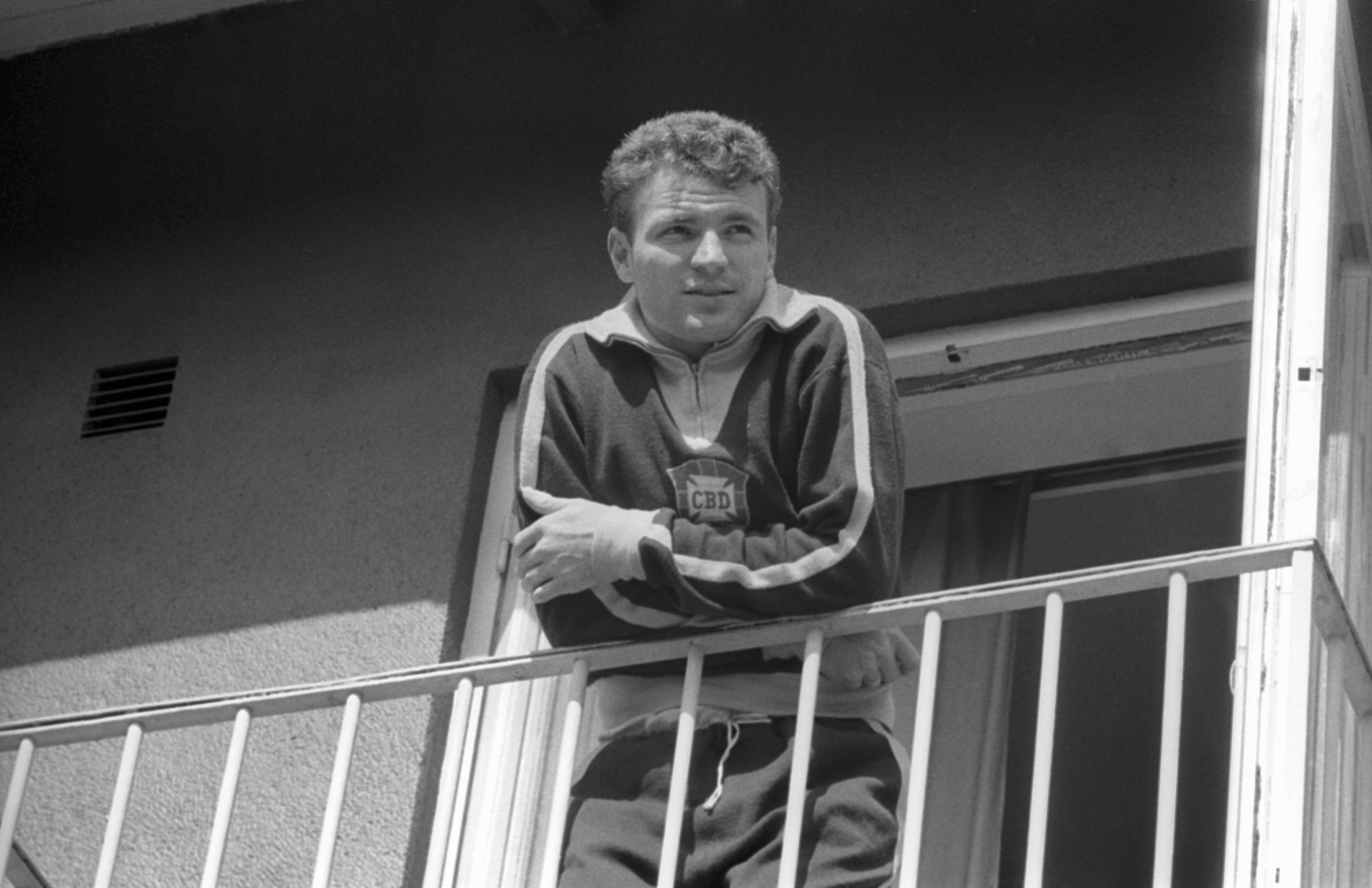
José Altafini was born in Brazil, but was better known as Mazzola, due to his resemblance to Italian legend Valentino Mazzola.
Playing as Mazzola, he was part of Brazil's World Cup-winning squad in 1958. He moved to AC Milan after the tournament and went on to represent Italy in the 1962 World Cup – this time as Altafini.
18. Careca
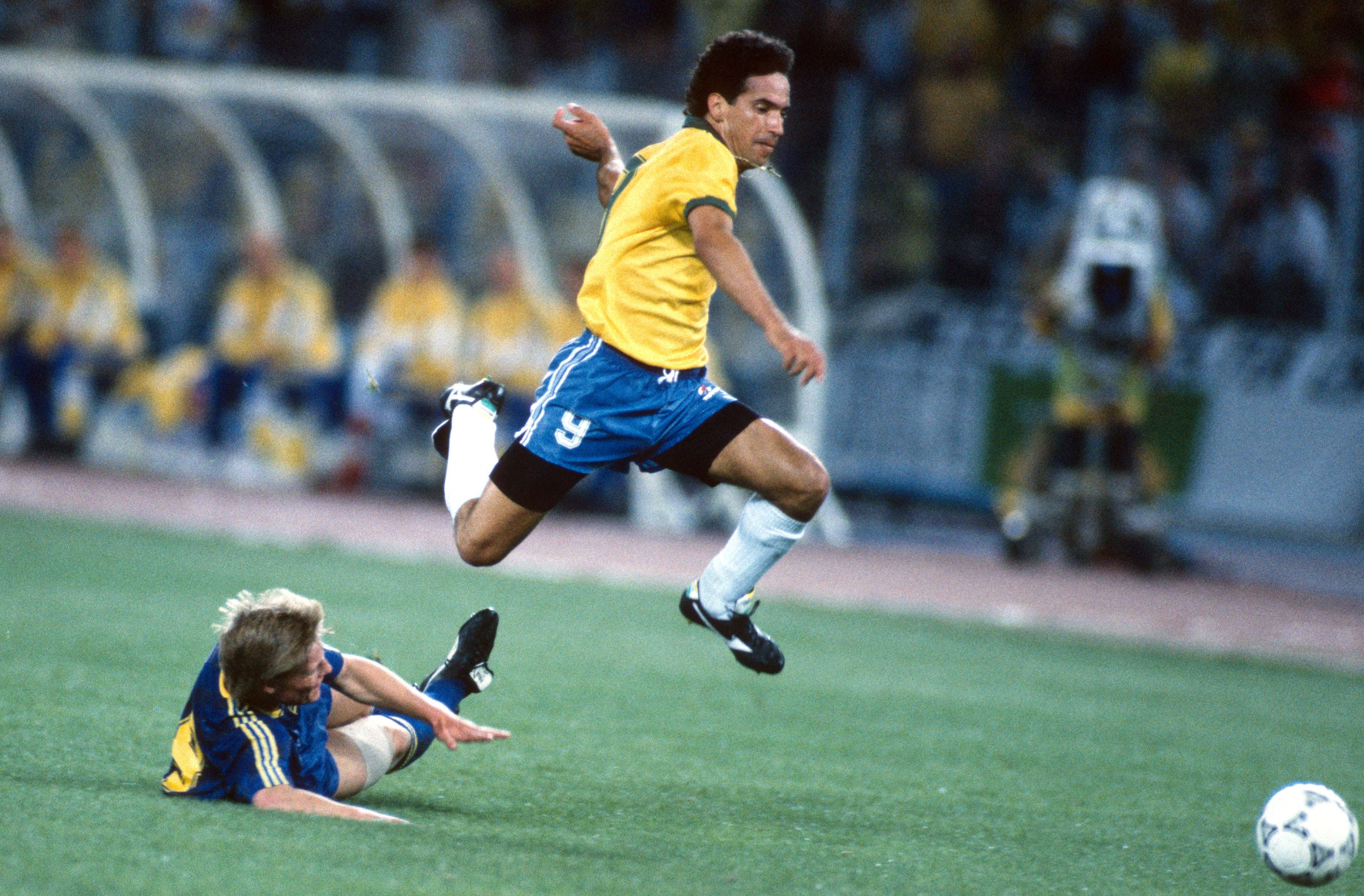
Considered one of Brazil's best-ever strikers, Careca scored 29 goals in 60 caps and played in two World Cups. He also featured in the great Napoli side of the late 1980s alongside Diego Maradona.
Born Antônio de Oliveira Filho, Careca took his footballing name from the Portuguese word for 'bald'. The nickname was given to him as a child because of his admiration for a famous Brazilian clown named Carequinha.
17. Santillana
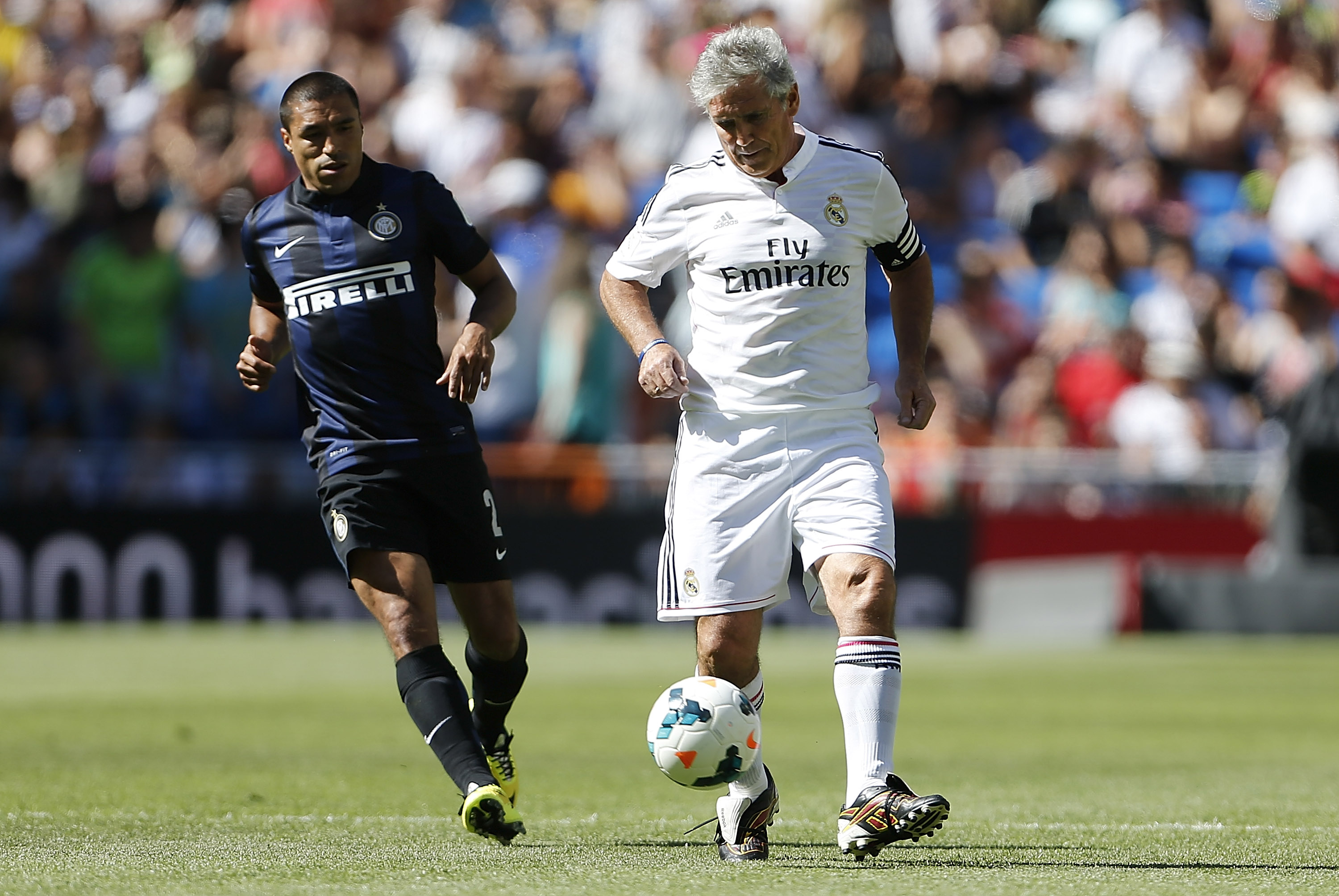
One of Real Madrid's greatest strikers, Santillana scored 290 goals for Los Blancos between 1971 and 1988. For Spain, he netted 15 times in 56 appearances.
But Santillana was not his name. Born Carlos Alonso González in Cantabria in the town of Santillana del Mar, the place became his nickname and his trademark.
16. Koke
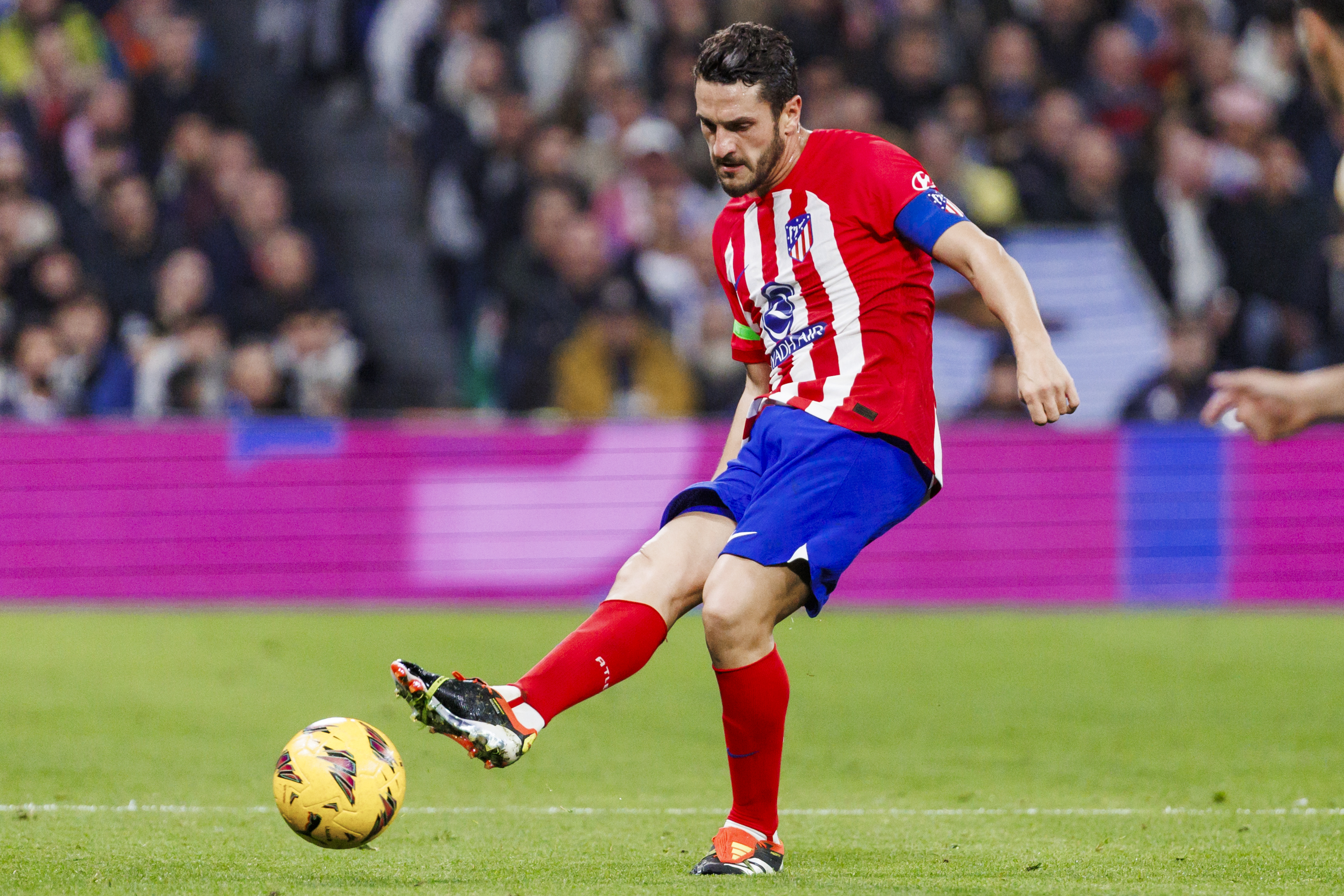
One of the best midfielders of his generation, Koke came through the youth system at Atletico Madrid to become one of the most important players for club and country.
His real name is Jorge Resurrección Merodio but his younger brother couldn't say Jorge and when he tried, it came out as Koke instead. The nickname stuck.
15. Maniche
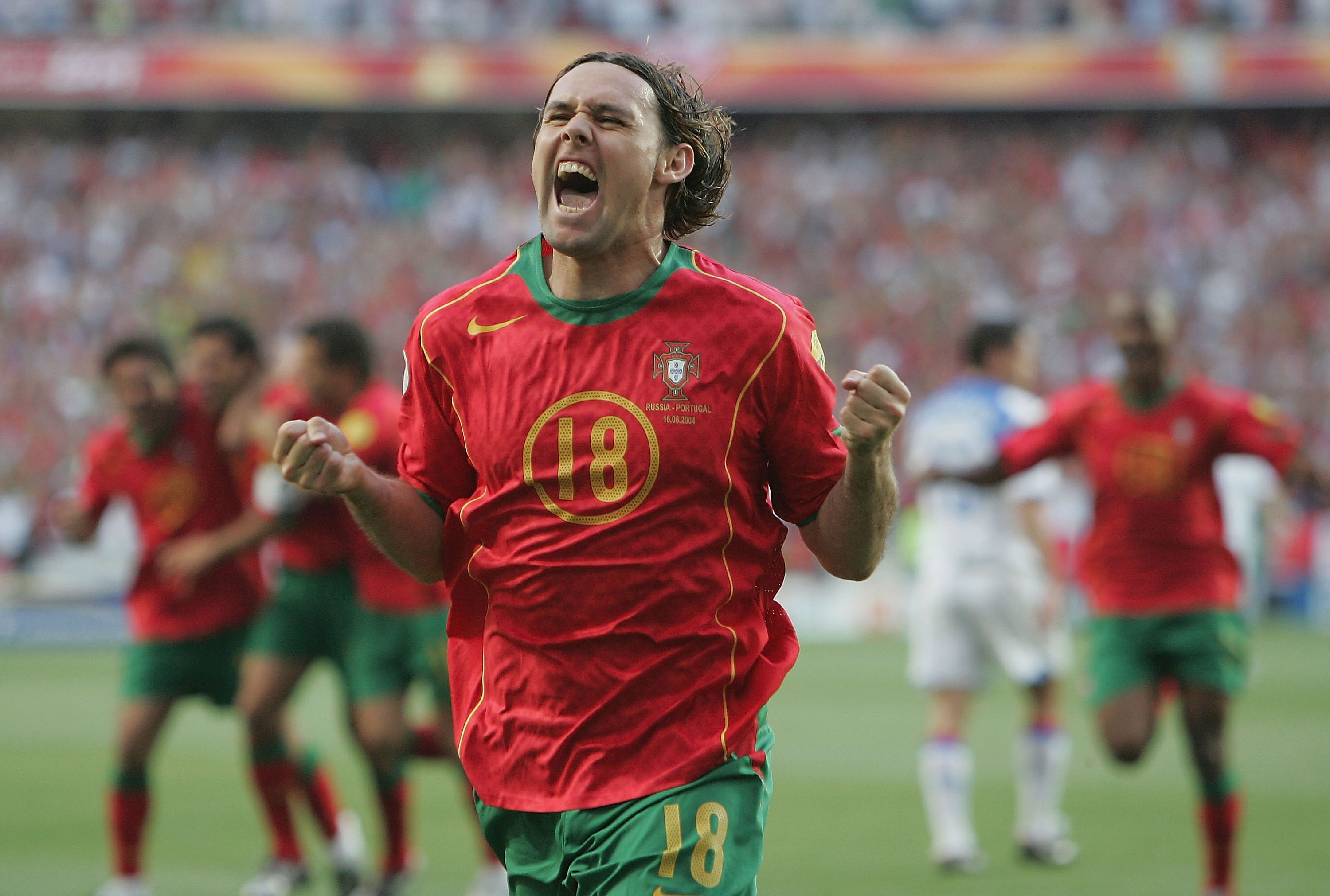
Maniche was part of the Porto side which won the Champions League in 2004 and was a runner-up with Portugal at Euro 2004. The midfielder won 52 caps overall.
Born Nuno Ricardo de Oliveira Ribeiro, Maniche started his career at Benfica and was given his nickname after Danish forward Michael Manniche, who played for the Lisbon giants in the 1980s.
14. Guti
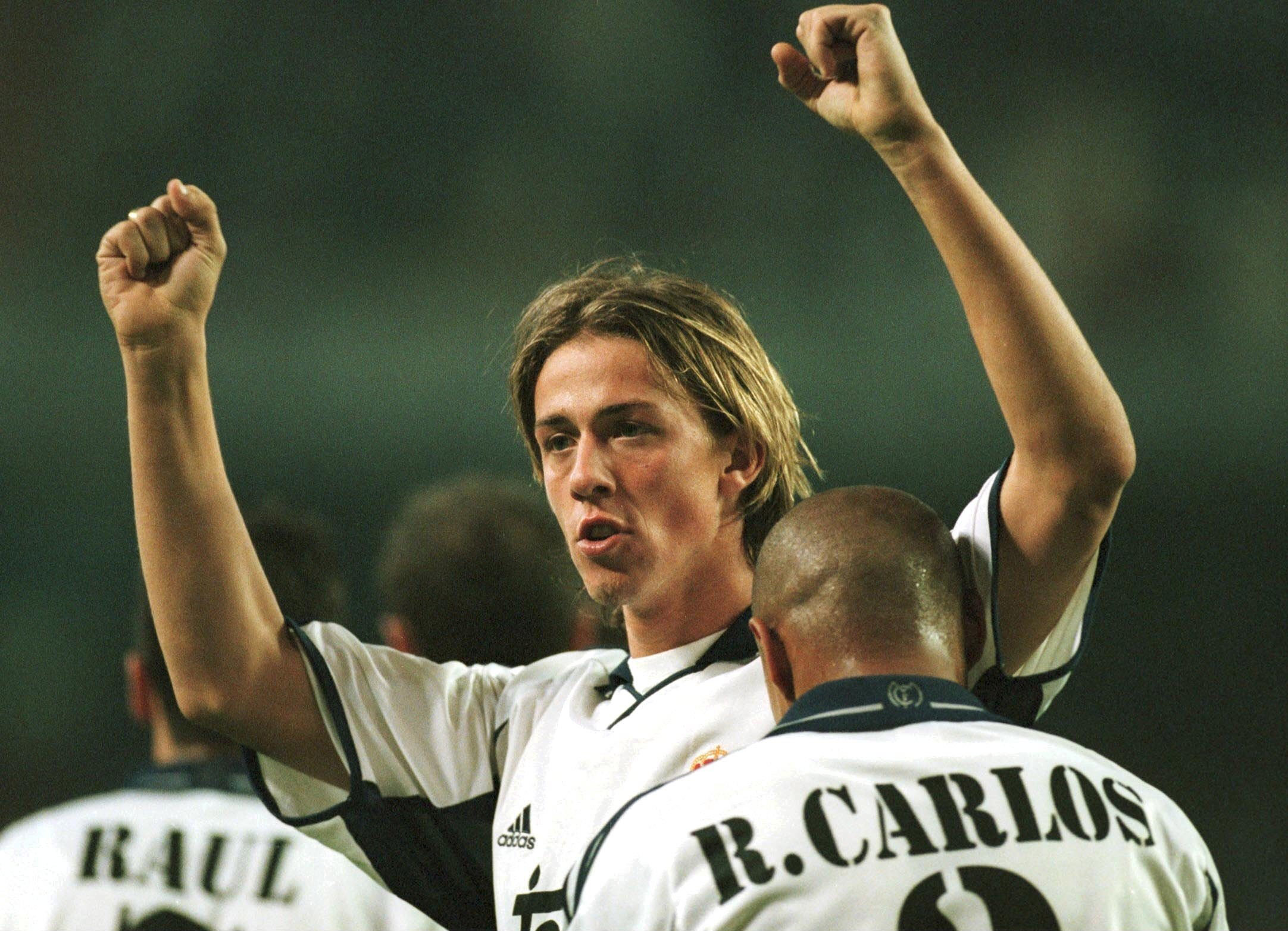
A stylish midfielder for Real Madrid, Guti was one of the most talented players of his generation. He played over 500 games for Los Blancos, winning five La Liga titles and three Champions Leagues.
The former attacking midfielder's full name is José María Gutiérrez Hernández, but he liked to be called Guti. It suited him. Later, as Almería coach, he told a journalist not to call him Guti, saying he wanted to be known as José María Gutiérrez because it was more suitable for a manager.
13. Bebé

Born in Portugal to Cape Verdean immigrants, Bebé briefly played for Manchester United before going on to establish himself in Spain. The winger was a Portuguese Under-21 international, but opted to represent Cape Verde following a lack of opportunities with the senior side.
Abandoned by his parents at a young age, he grew up in a homeless shelter in Lisbon and was nicknamed Bebé ("Baby") by his older brother. His full name is Tiago Manuel Dias Correia.
12. Emerson Royal
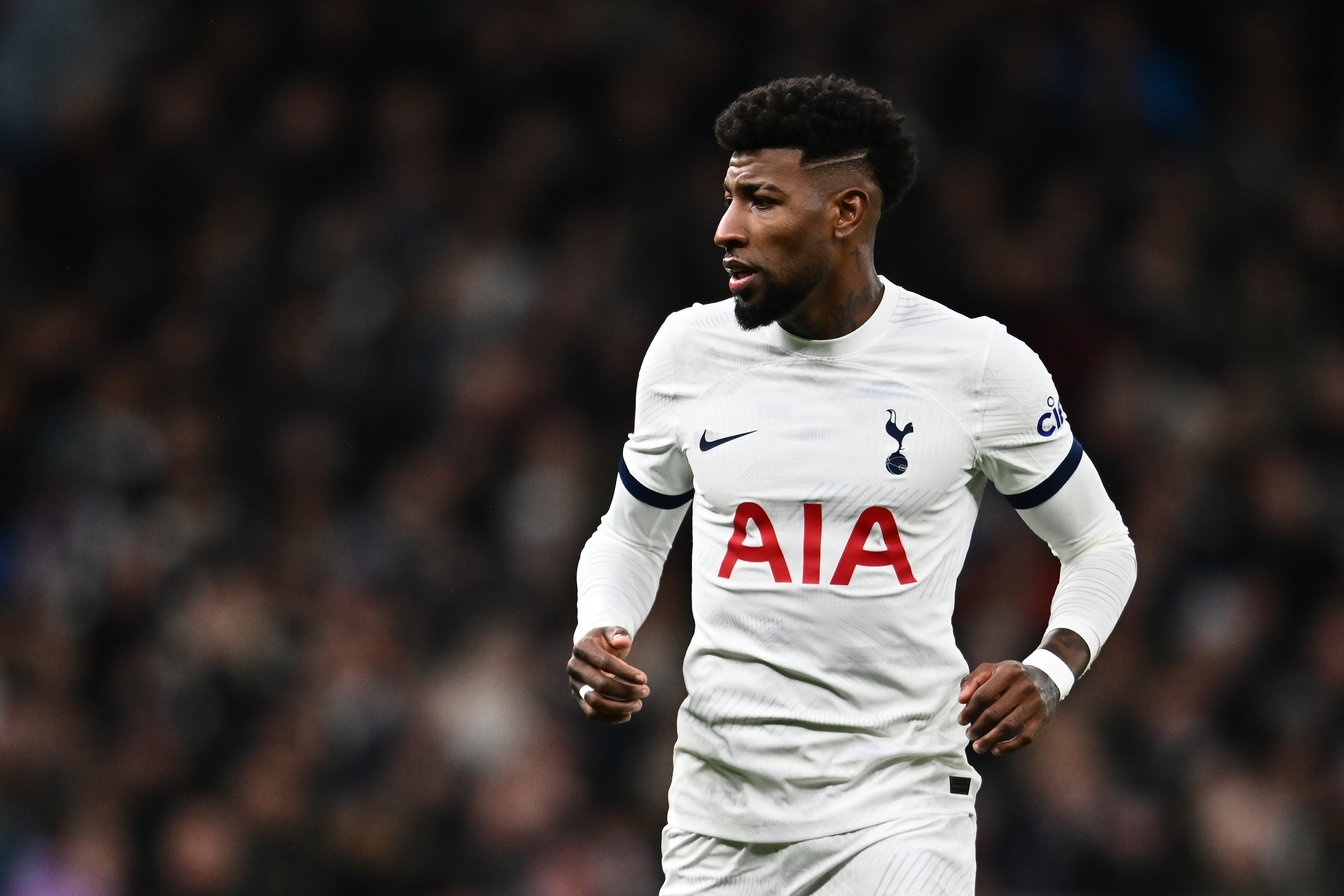
Emerson Royal played for Real Betis and briefly for Barcelona before joining Tottenham in 2021. A full-back or wing-back, he has represented Brazil since 2019.
Born Emerson Aparecido Leite de Souza Junior, the defender's "Royal" nickname was coined as his uncle said he resembled the mascot of the Royal-branded gelatin dessert sold in Brazil.
11. Dida
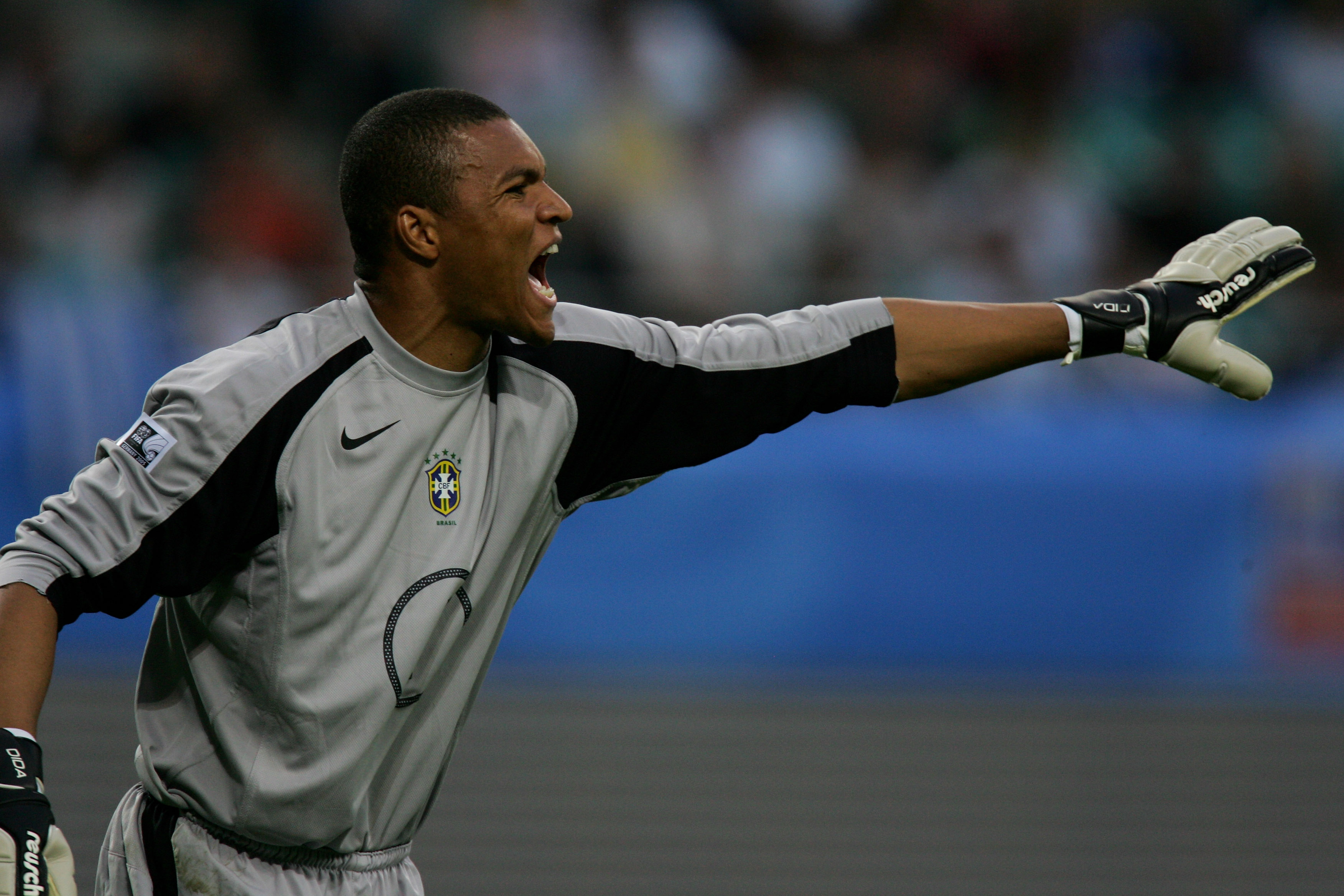
Dida won 91 caps for Brazil between 1995 and 2006. A World Cup winner in 2002, although not as a starter, he also got his hands on two Champions League trophies with AC Milan and a Copa Libertadores title at Cruzeiro.
Born Nélson de Jesus Silva, the goalkeeper was a Flamengo fan growing up and took his name from the club's former striker Dida. Throughout his career, he earned many more nicknames, including A muralha azul ("Blue Wall"), São Dida ("Saint Dida") and O rei dos pênaltis ("King of Penalties").
10. Roberto Dinamite
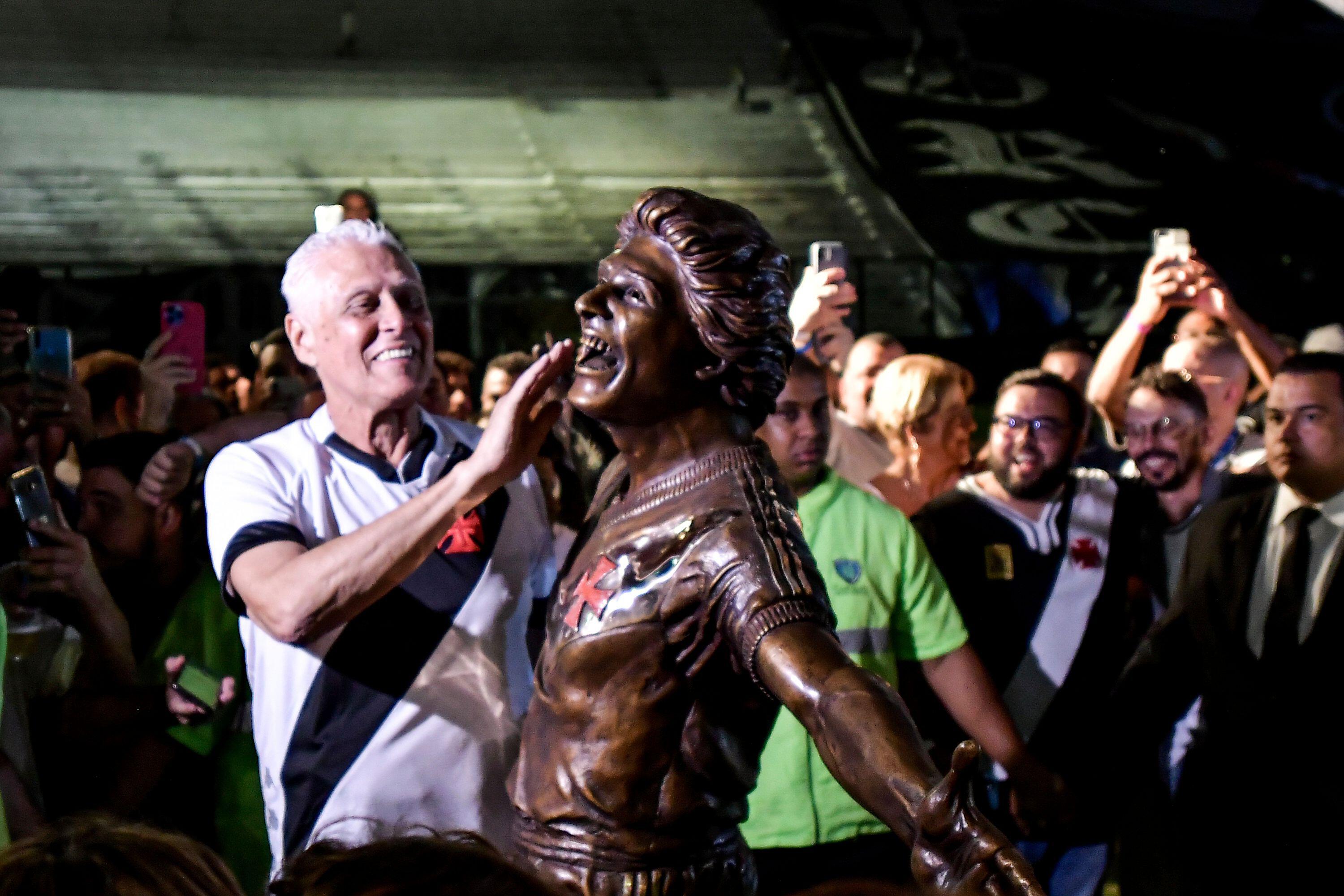
One of Brazil's great strikers, Roberto Dinamite is the all-time scorer at Vasco da Gama, where he netted an amazing 698 goals either side of a brief spell at Barcelona.
Born Carlos Roberto de Oliveira, his Dinamite nickname came from journalist Aparício Pires, who wrote in the Jornal dos Sports newspaper that "the Dynamite boy detonates at Maracanã" after a spectacular goal early in his career.
9. Bebeto

Bebeto scored 39 goals in 75 games for Brazil and won both the Copa America and the World Cup with his national side. He was South American Footballer of the Year in 1989.
The former Flamengo, Vasco da Gama and Deportivo La Coruña striker was born José Roberto Gama de Oliveira, but was nicknamed Bebeto due to his baby face. Team-mate Romario later called him "Cry baby" for the way he pouted to referees.
8. Deco
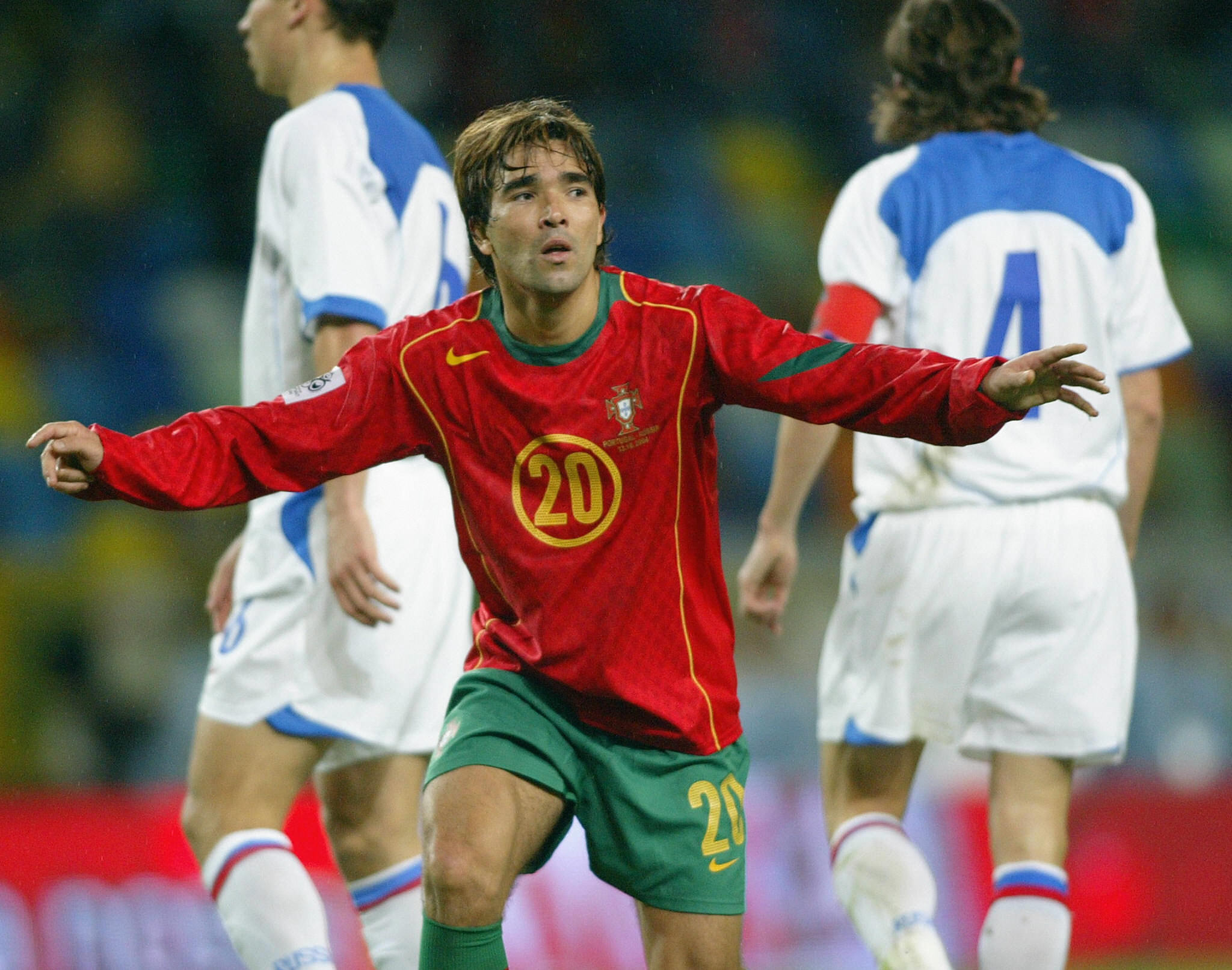
A Champions League winner with both Porto and Barcelona, Brazil-born Deco played 75 games for Portugal between 2003 and 2010 and was a European Championship finalist in 2004.
Deco comes from Decuzinho, a nickname given to young children who miss out words when speaking. It was given to him by his uncle when he was a young boy. The former midfielder's real name is Anderson Luis de Souza.
7. Dunga
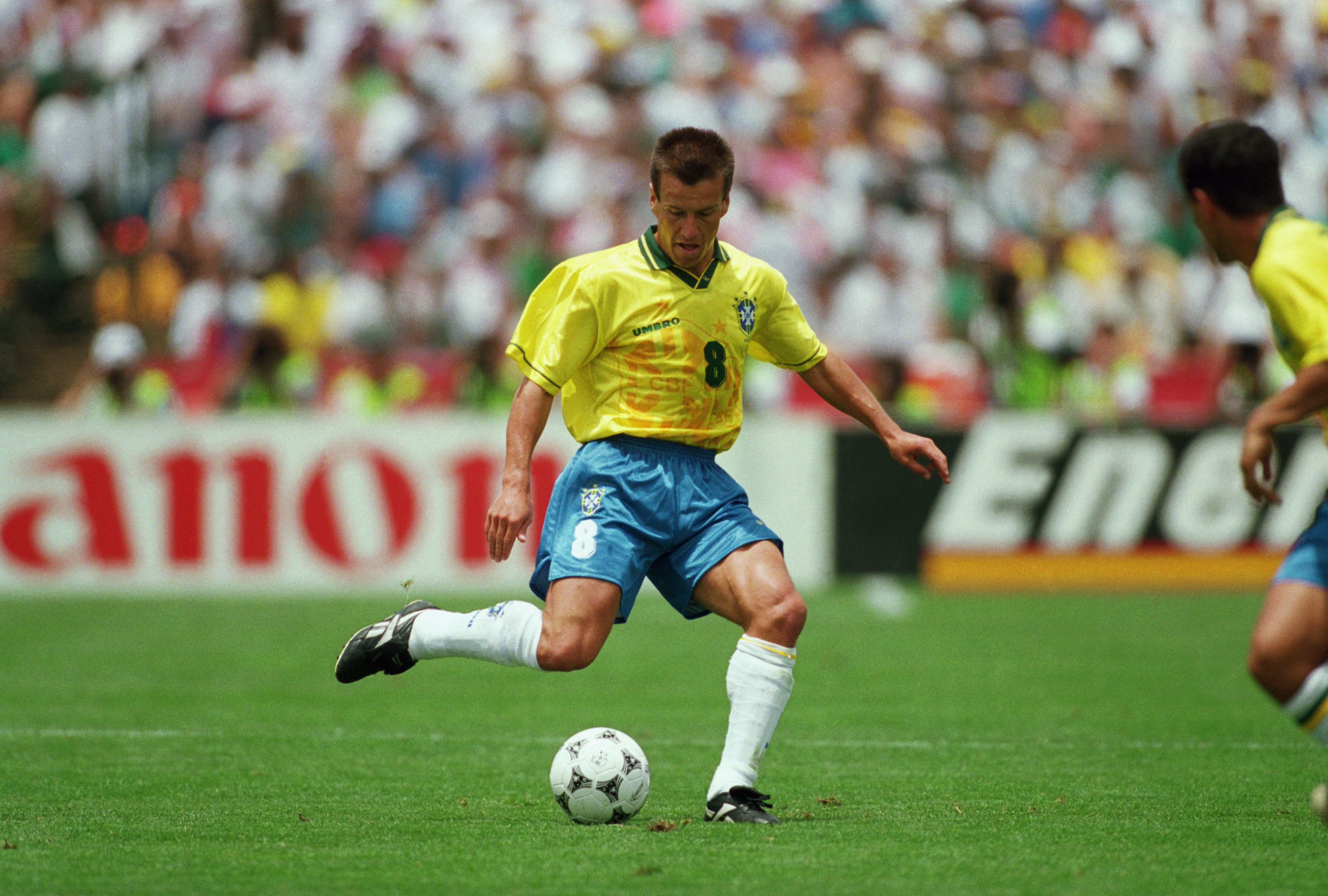
Although considered "un-Brazilian" due to his rugged qualities in midfield, Dunga was highly effective in a team of stars and captained Brazil to back-to-back World Cup finals in 1994 and 1998.
Carlos Caetano Bledorn Verri earned the nickname Dunga, which is derived from the Portuguese translation of "Dopey", a dwarf from Disney's version of Snow White. The nickname was given to him by his uncle due to his short stature during his childhood and it stuck, even though he grew up to be taller than expected.
6. Cafu
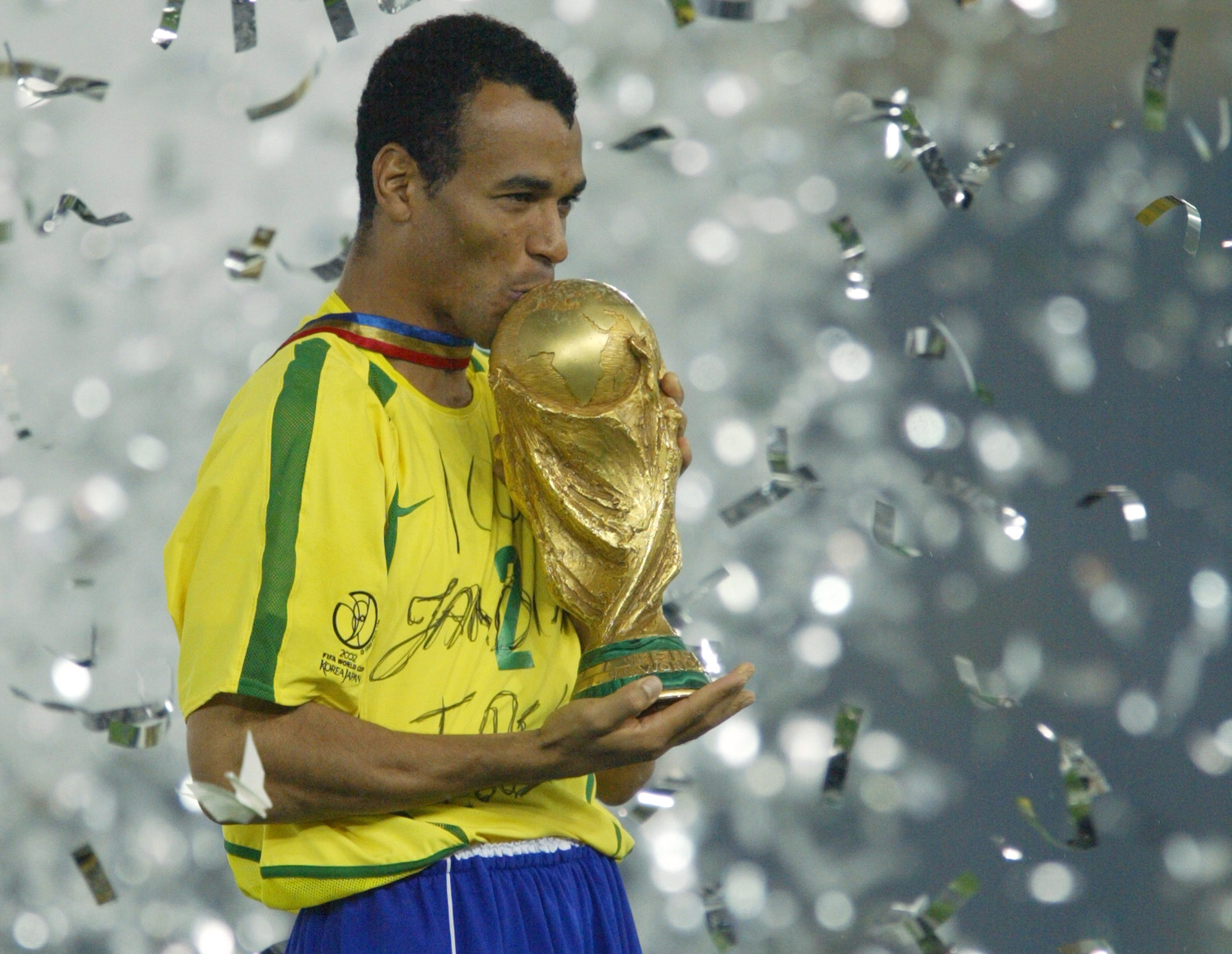
Considered one of the best right-backs in football history, Cafu played in three World Cup finals for Brazil and won two, captaining the team to victory in 2002.
The former AC Milan and Roma defender, full name Marcos Evangelista de Morais, earned the nickname Cafu at a young age due to his similarity with Fluminense right winger Cafuringa. In Italy, he was later dubbed Il Pendolino (the "Express Train") due to his powerful runs up and down the wing.
5. Nani
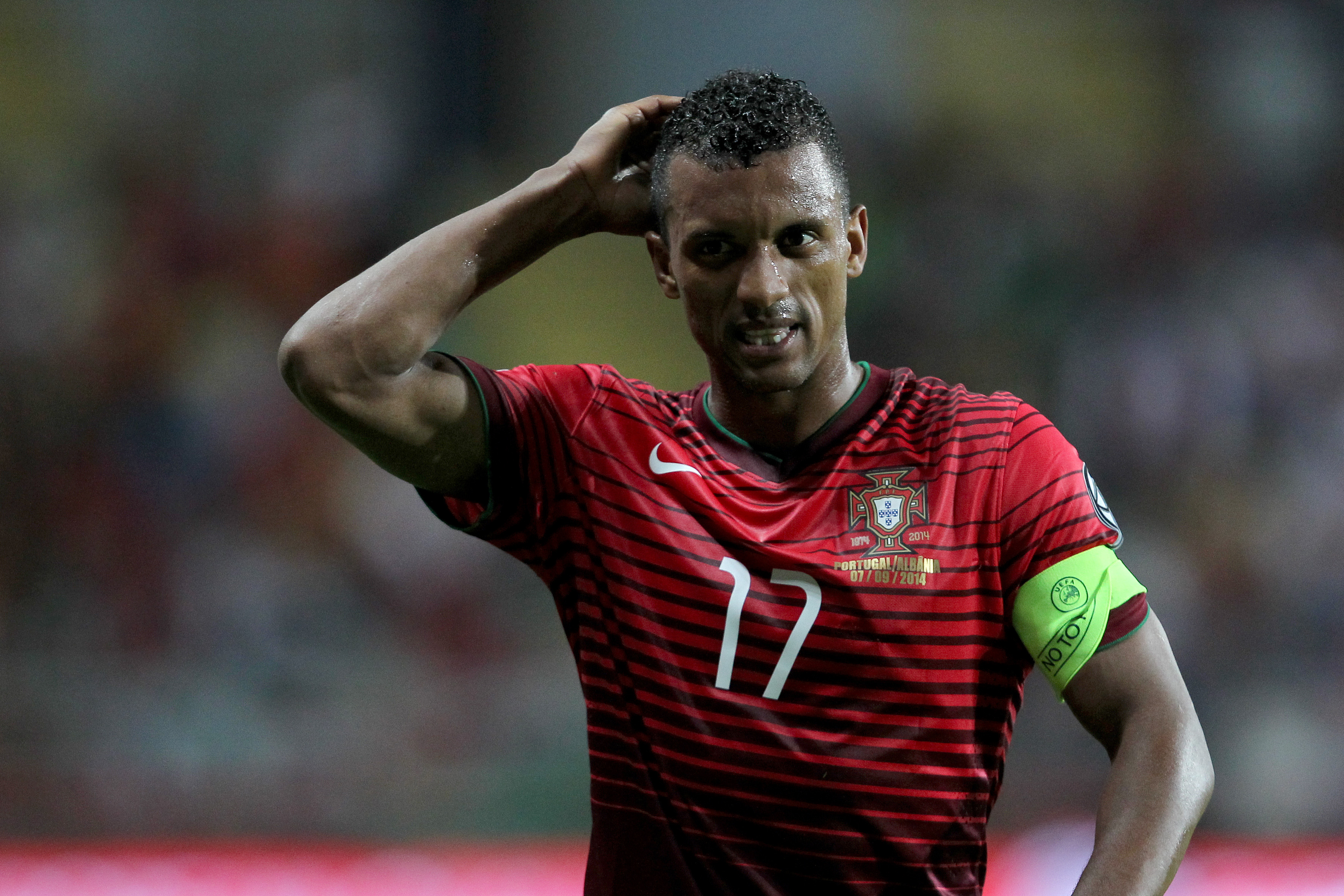
One of the most talented Portuguese players of his generation, Nani was part of the team which won Euro 2016 and earned over 100 caps in a successful career. He also won multiple trophies in seven seasons at Manchester United.
The winger's full name is Luís Carlos Almeida da Cunha. Abandoned by his parents, he was brought up by his aunt and the nickname Nani was given to him by one of his older sisters at a young age.
4. Zico
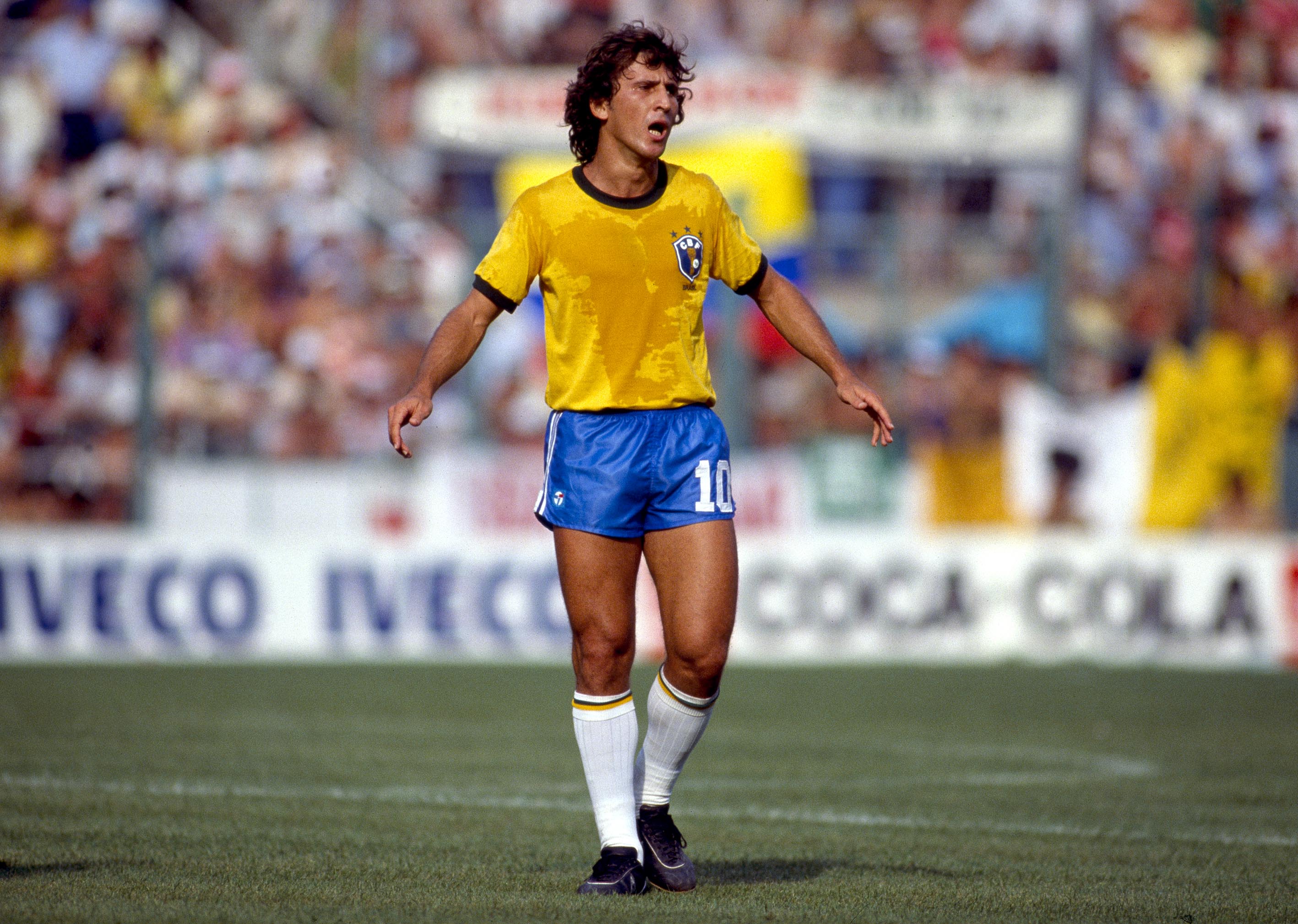
Zico is one of Brazil's best-ever playmakers and one of the stars of the spectacular side of 1982, which is fondly remembered for its style of play despite not winning the World Cup. He is also a legend at Flamengo.
Born Arthur Antunes Coimbra in a family of Portuguese origin, his nickname came from shortened versions of his name: Arthurzinho ("Little Arthur") became Arthurzico, then Tuzico and, finally, Zico, a version created by his cousin Ermelinda "Linda" Rolim. His talent on the pitch also saw him nicknamed "the white Pelé".
3. Kaká
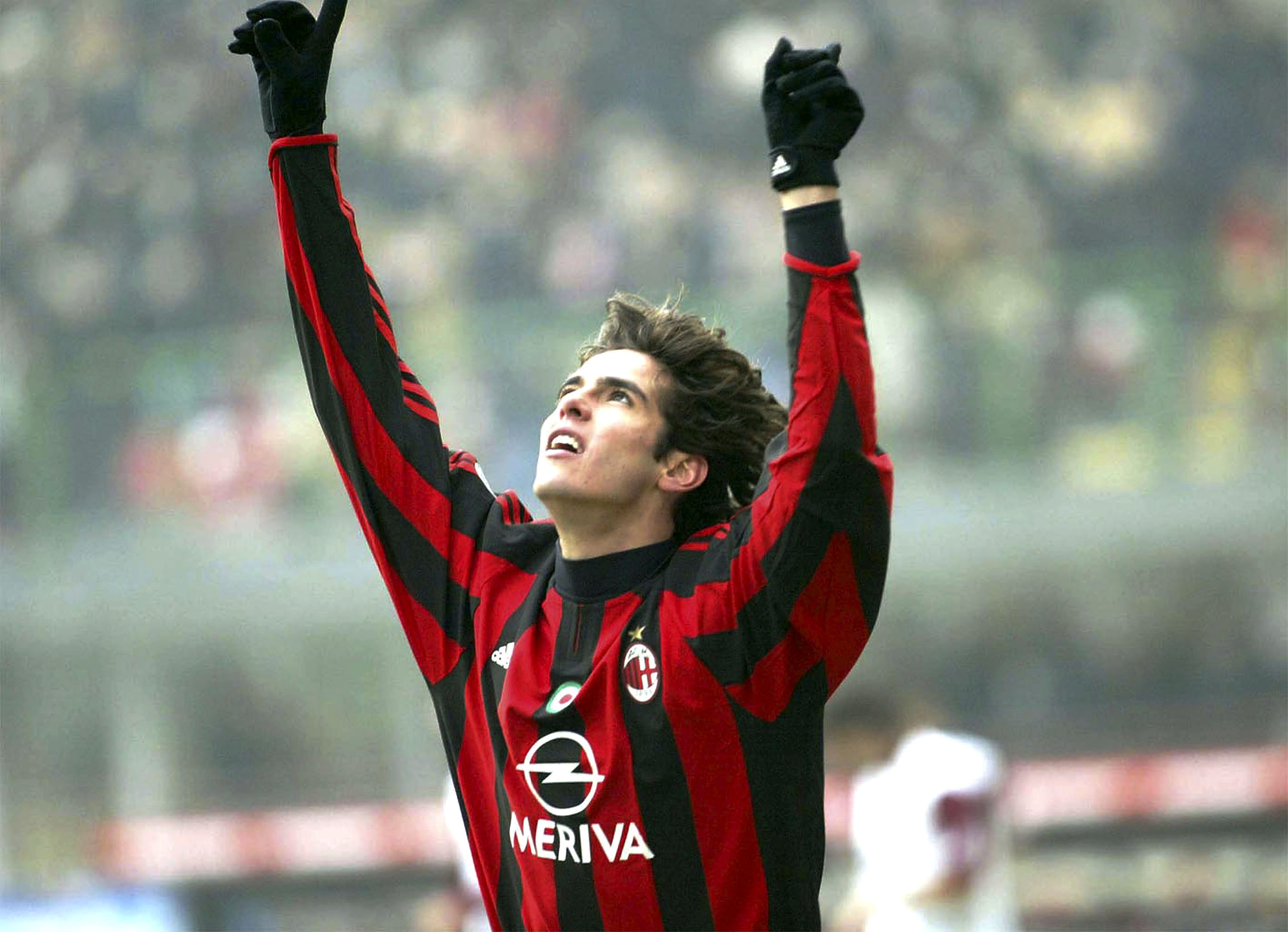
Kaká was part of Brazil's World Cup-winning squad in 2002 and went on to become one of the nation's best-ever players. He also won a series of trophies at AC Milan and took home the Ballon d'Or in 2007.
Born Ricardo Izecson dos Santos Leite, his younger brother Rodrigo called him Caca because he was unable to pronounce Ricardo. That eventually evolved to become Kaká.
2. Garrincha
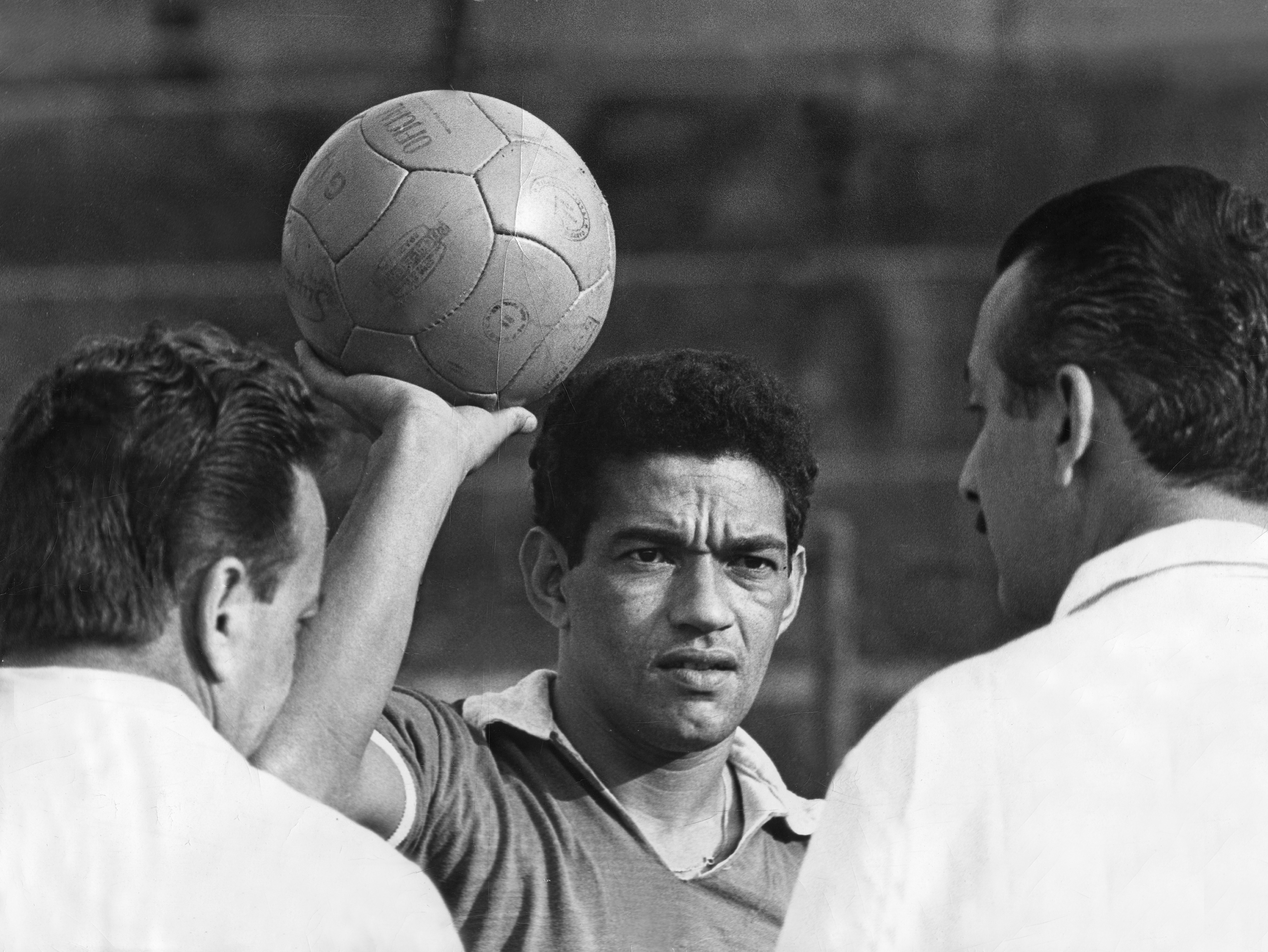
A two-time World Cup winner with Brazil in 1958 and 1962, Garrincha is one of the greatest players of all time and one of the best-ever dribblers.
Born Manuel Francisco dos Santos, he was smaller than other boys his age and his sister Rosa started calling him Garrincha, which was the name for a wren or little brown bird in north-eastern Brazil. The name stuck.
1. Pelé
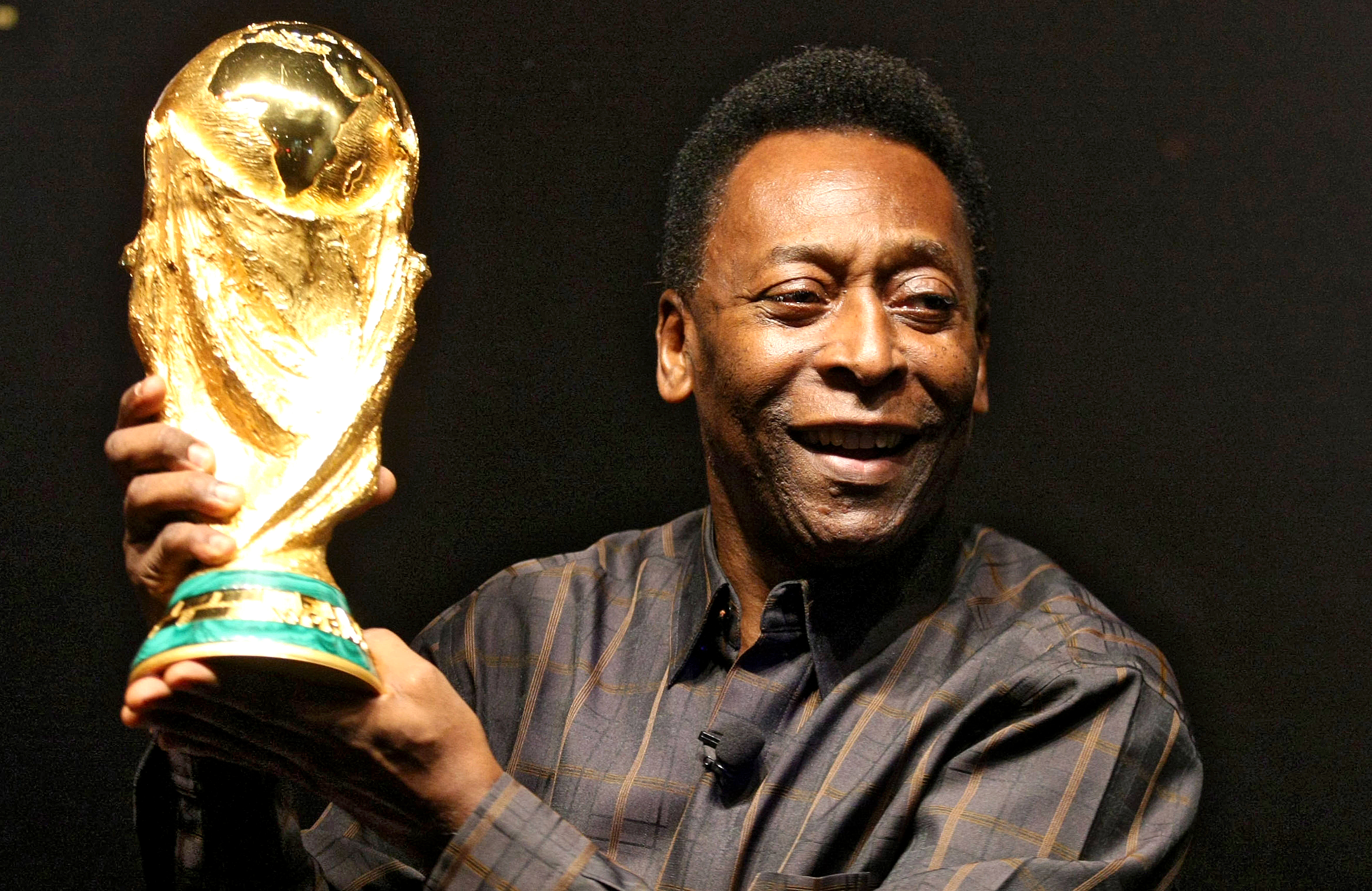
One of the greatest footballers of all time, Pelé won three World Cups with Brazil and scored 77 goals in 92 appearances for his national team between 1957 and 1971.
Born Edson Arantes do Nascimento in 1940, the nickname Pelé is said to come from a mispronunciation of Vasco de São Lourenço goalkeeper Bilé, his favourite player.







